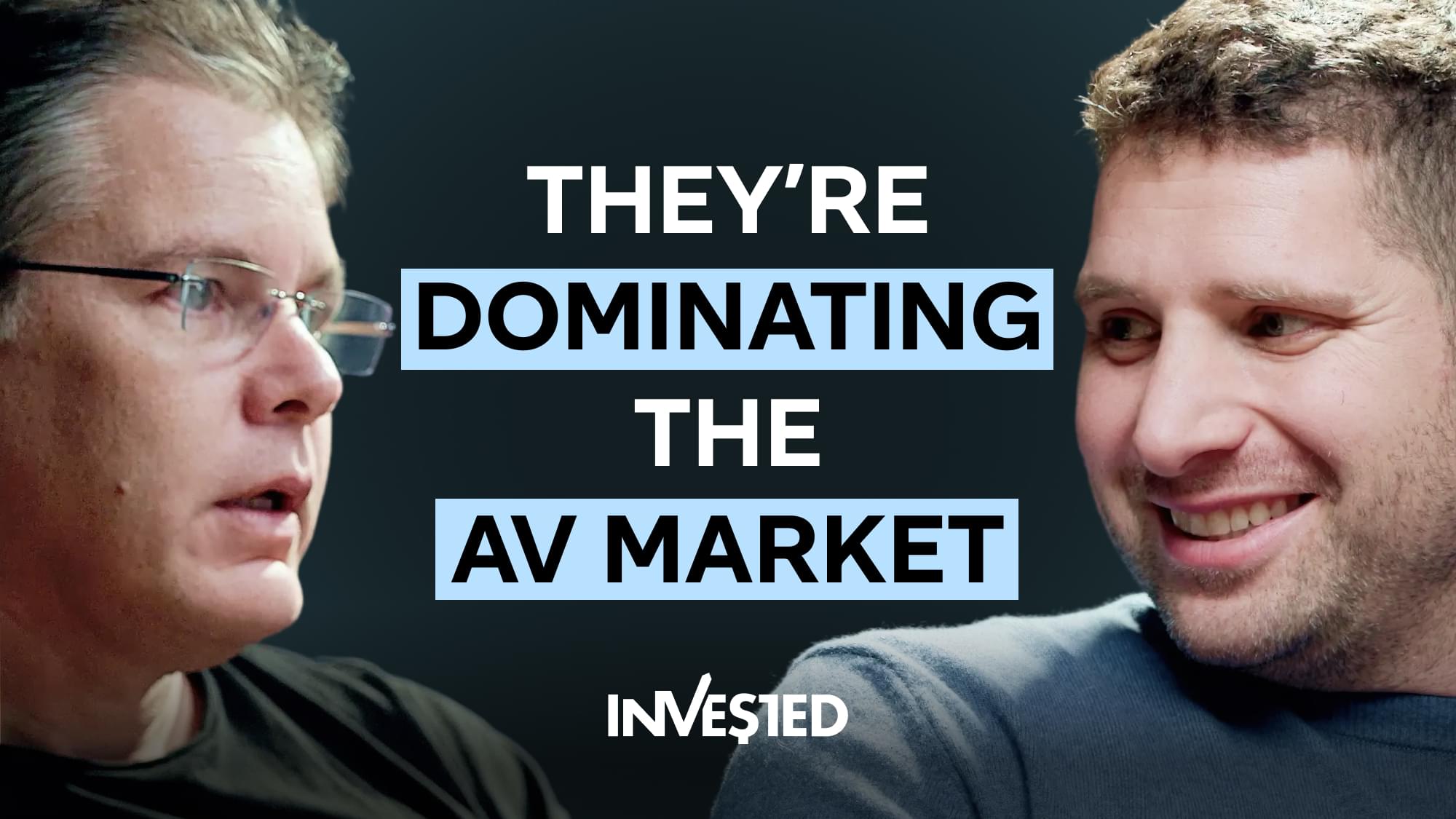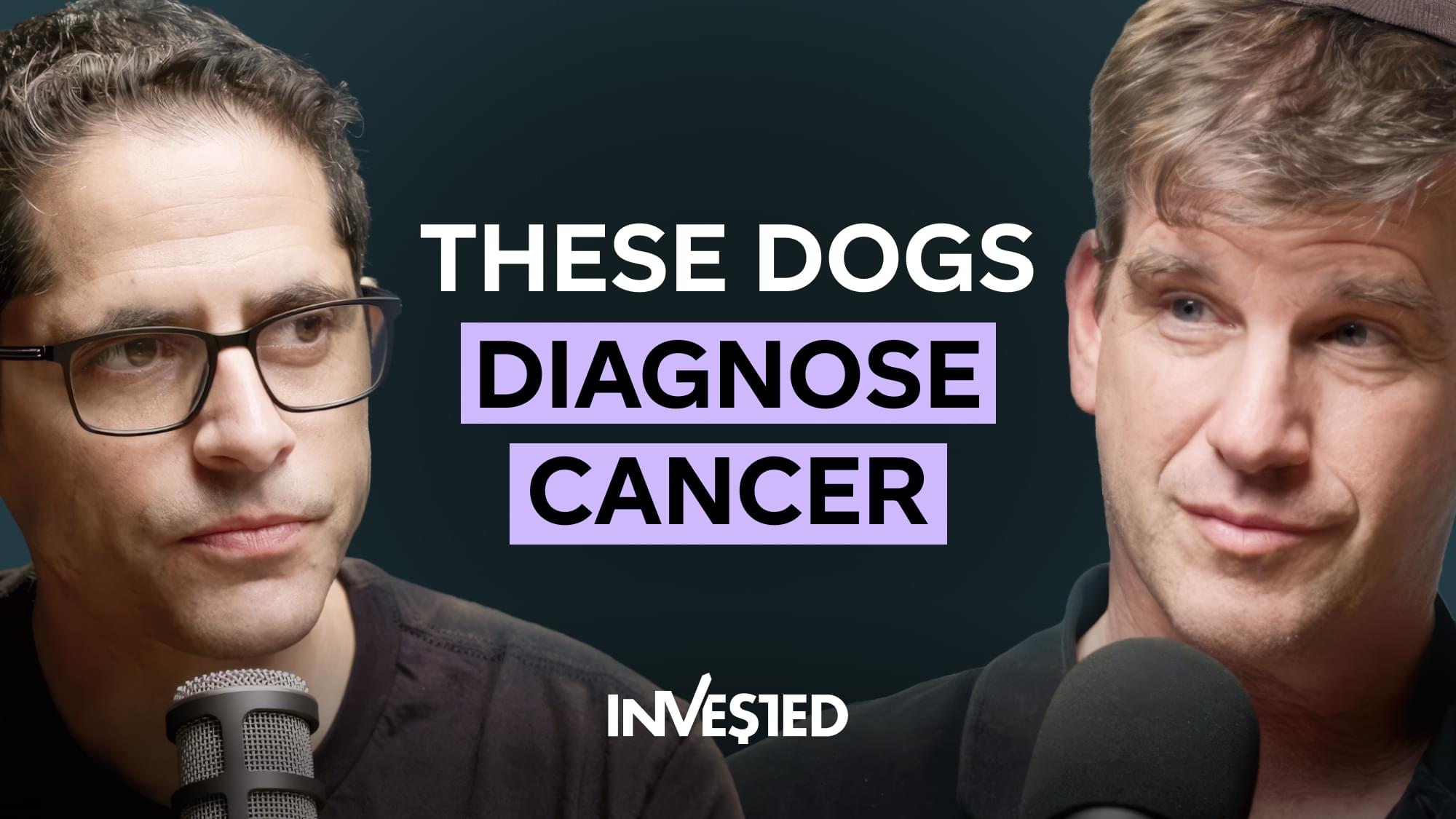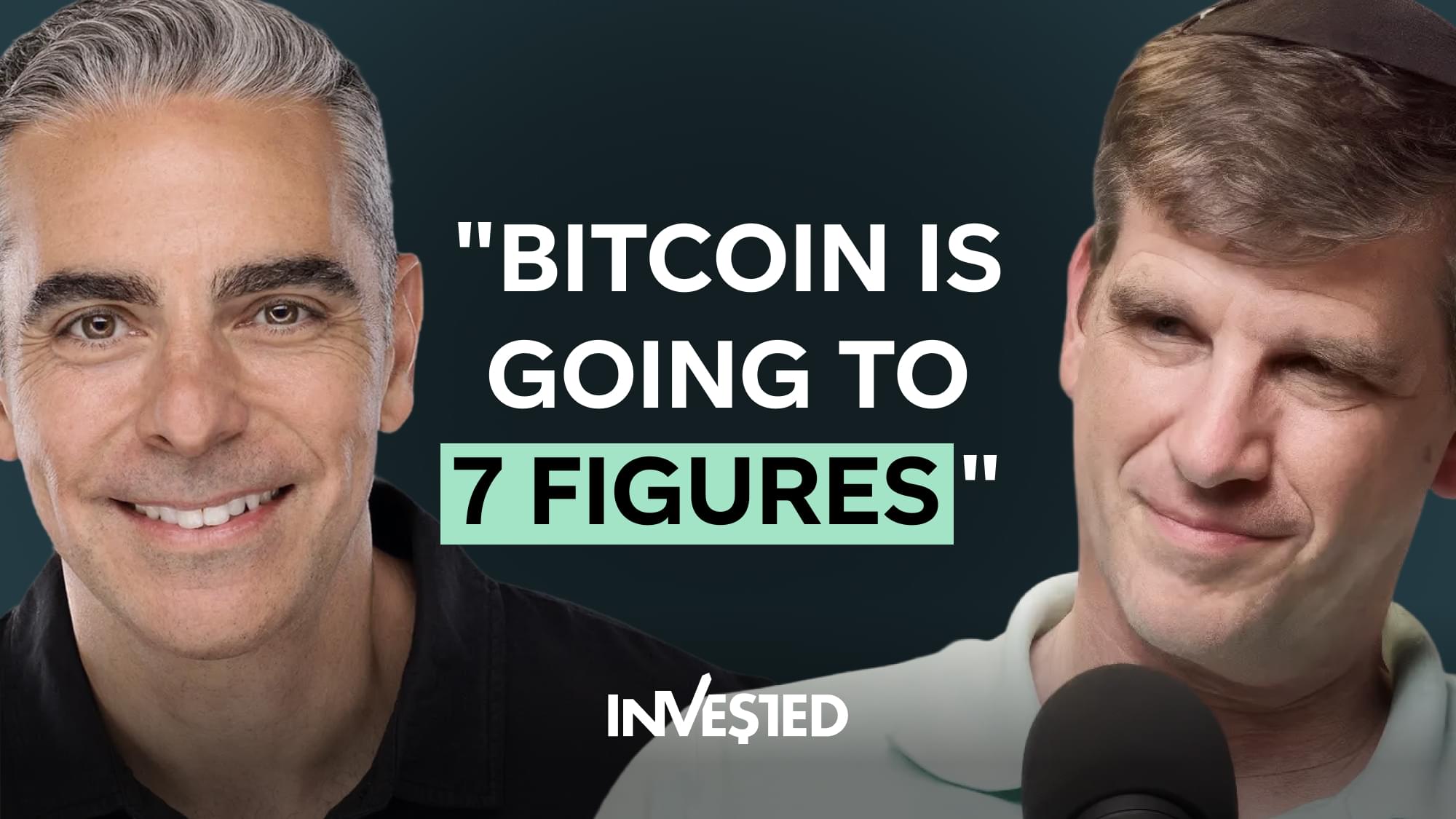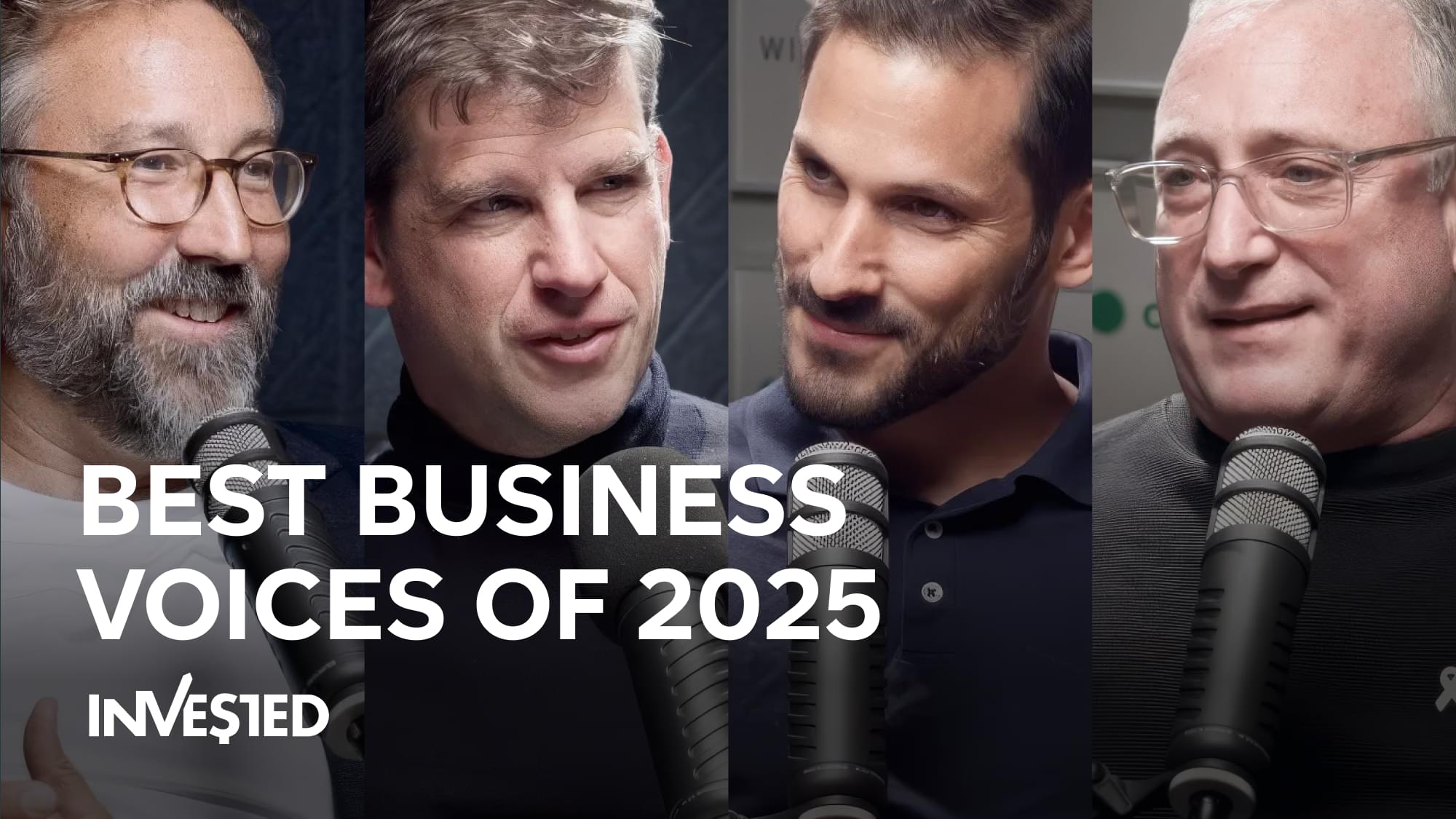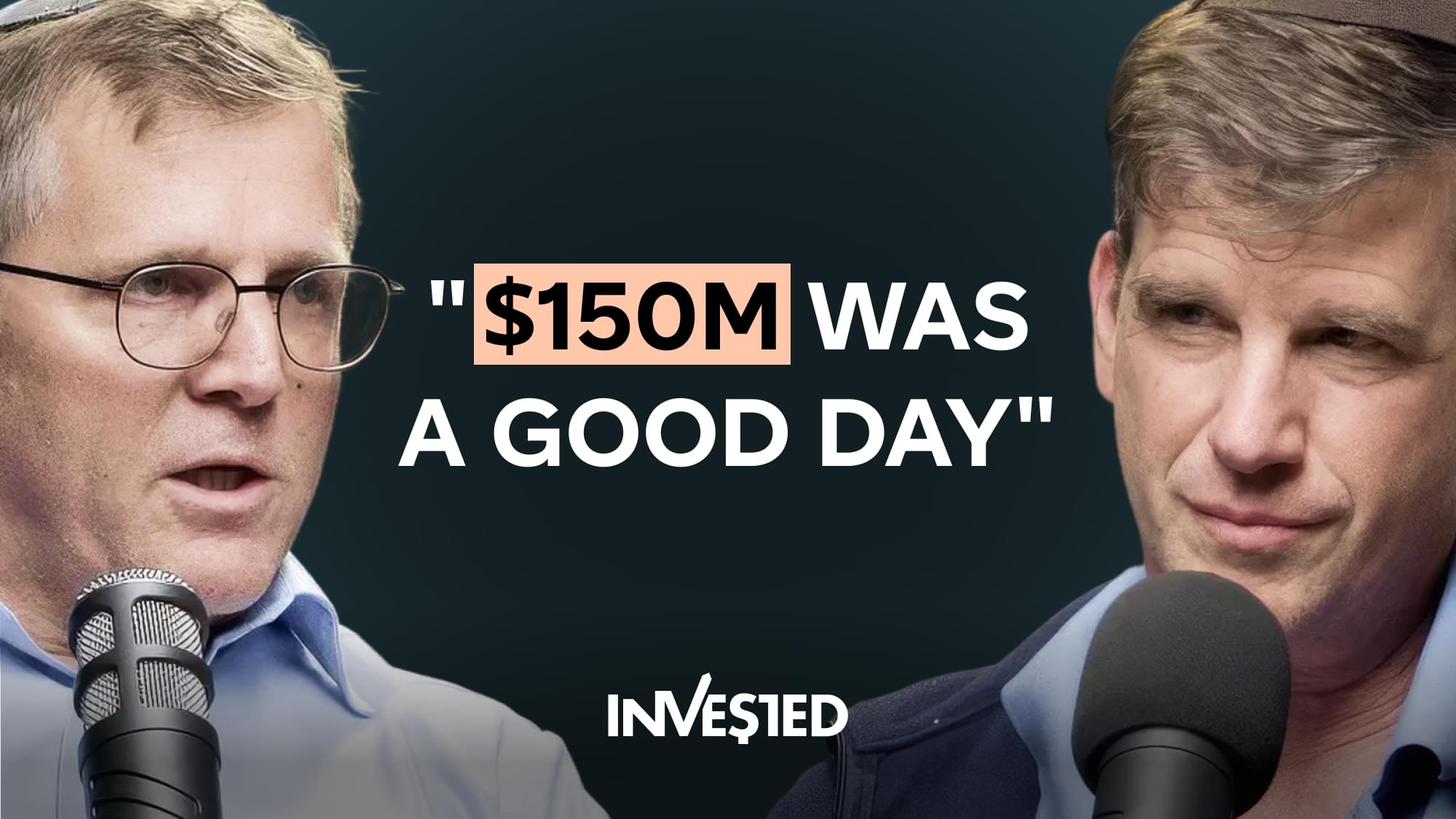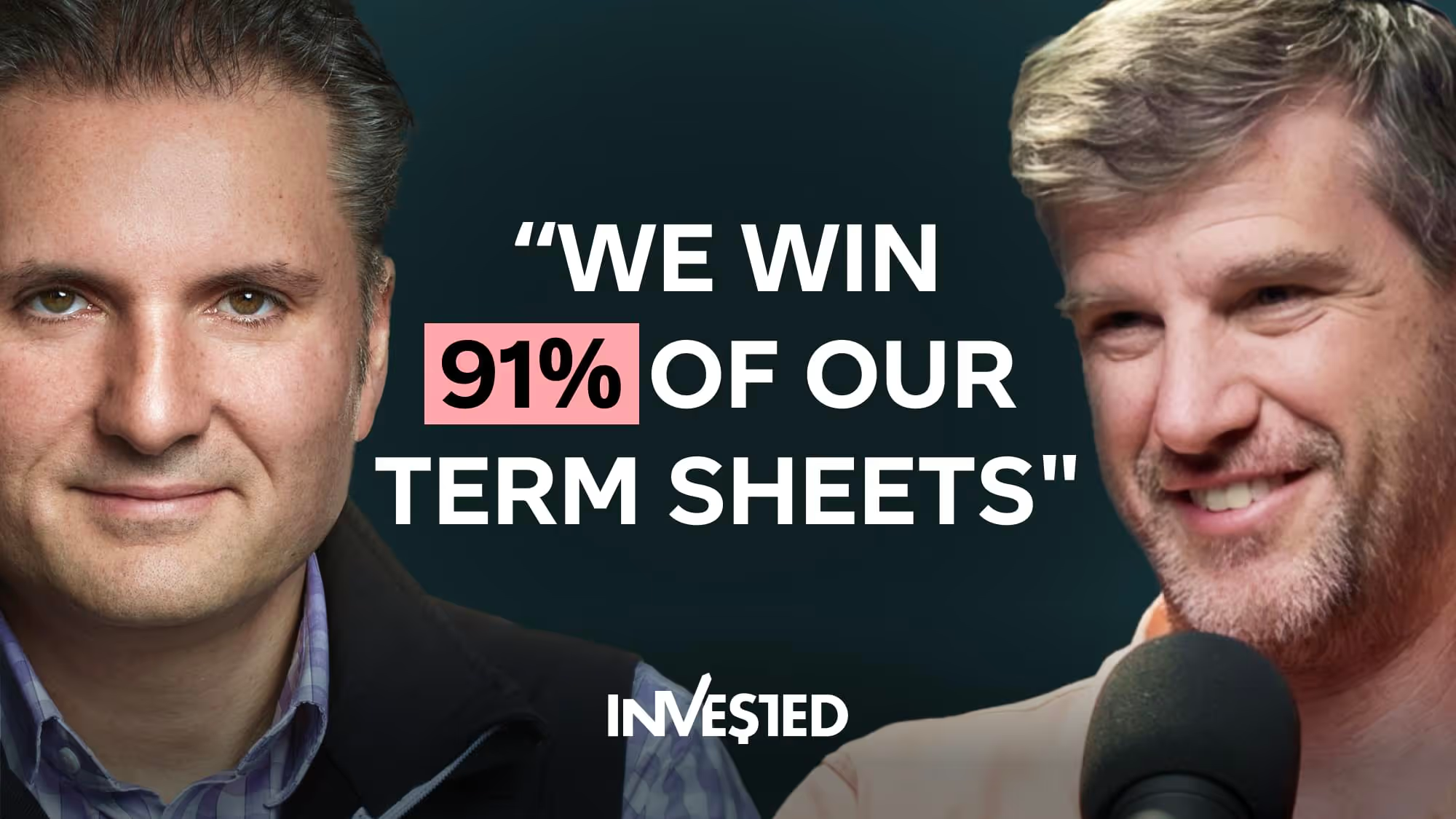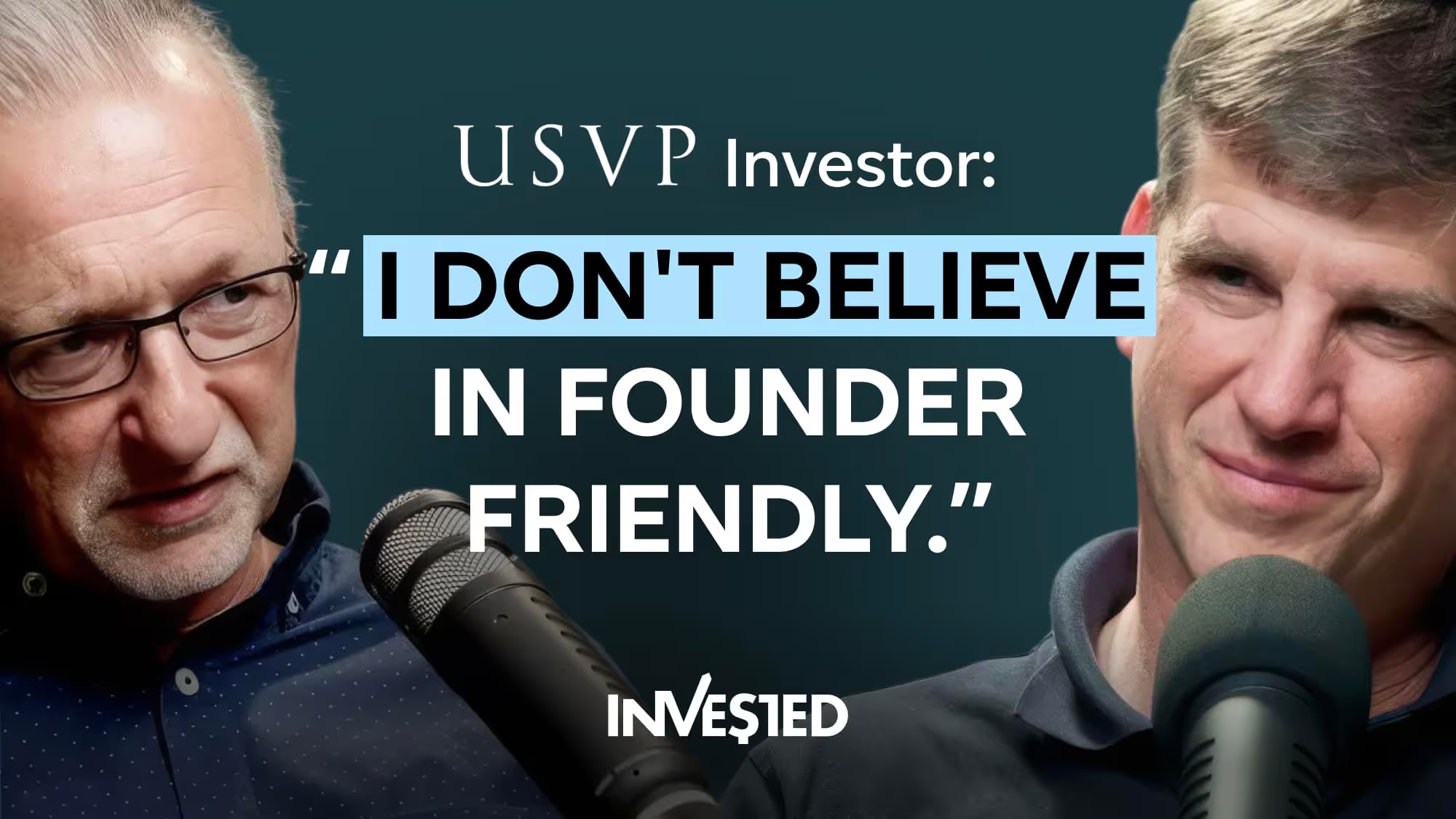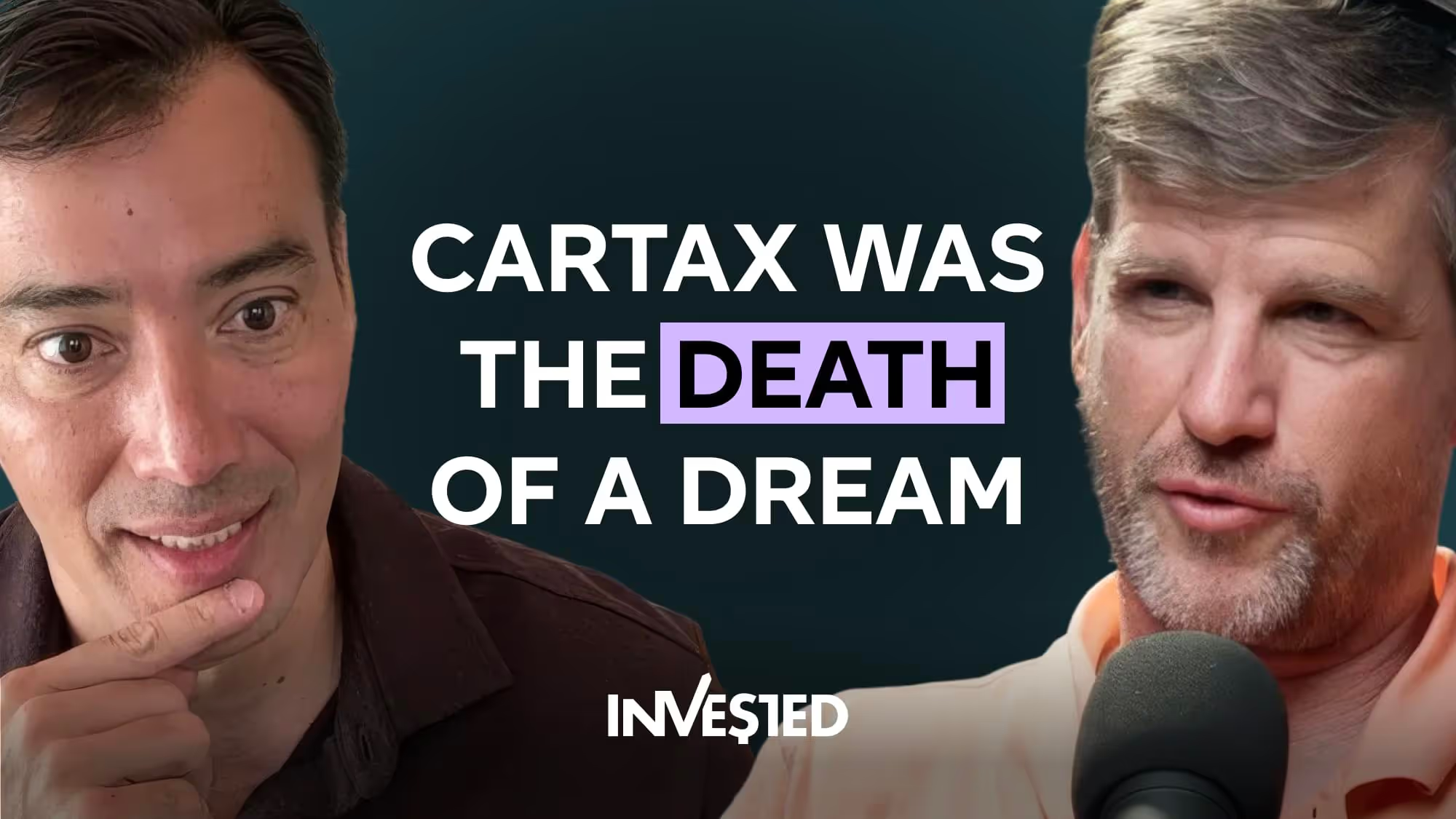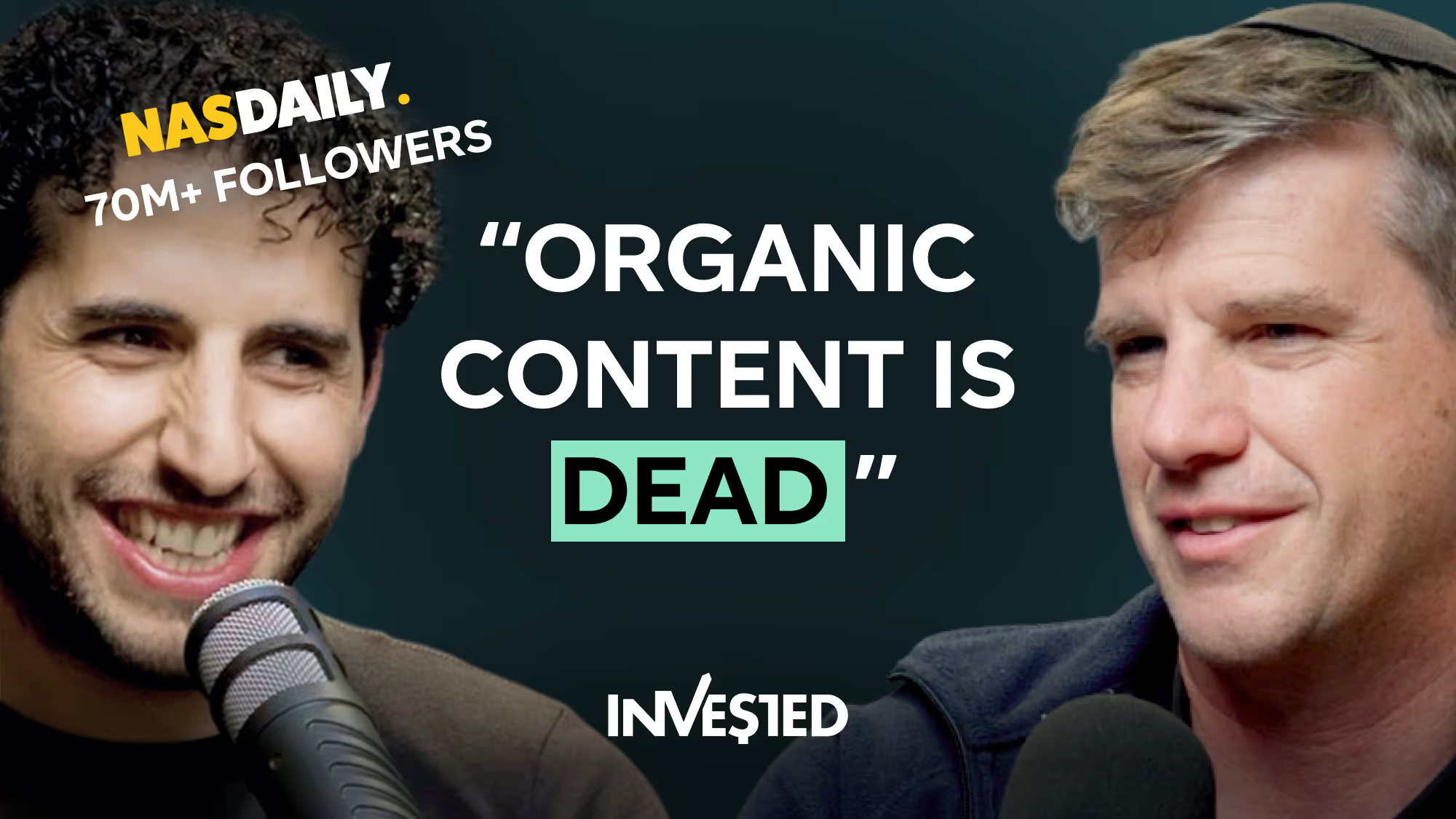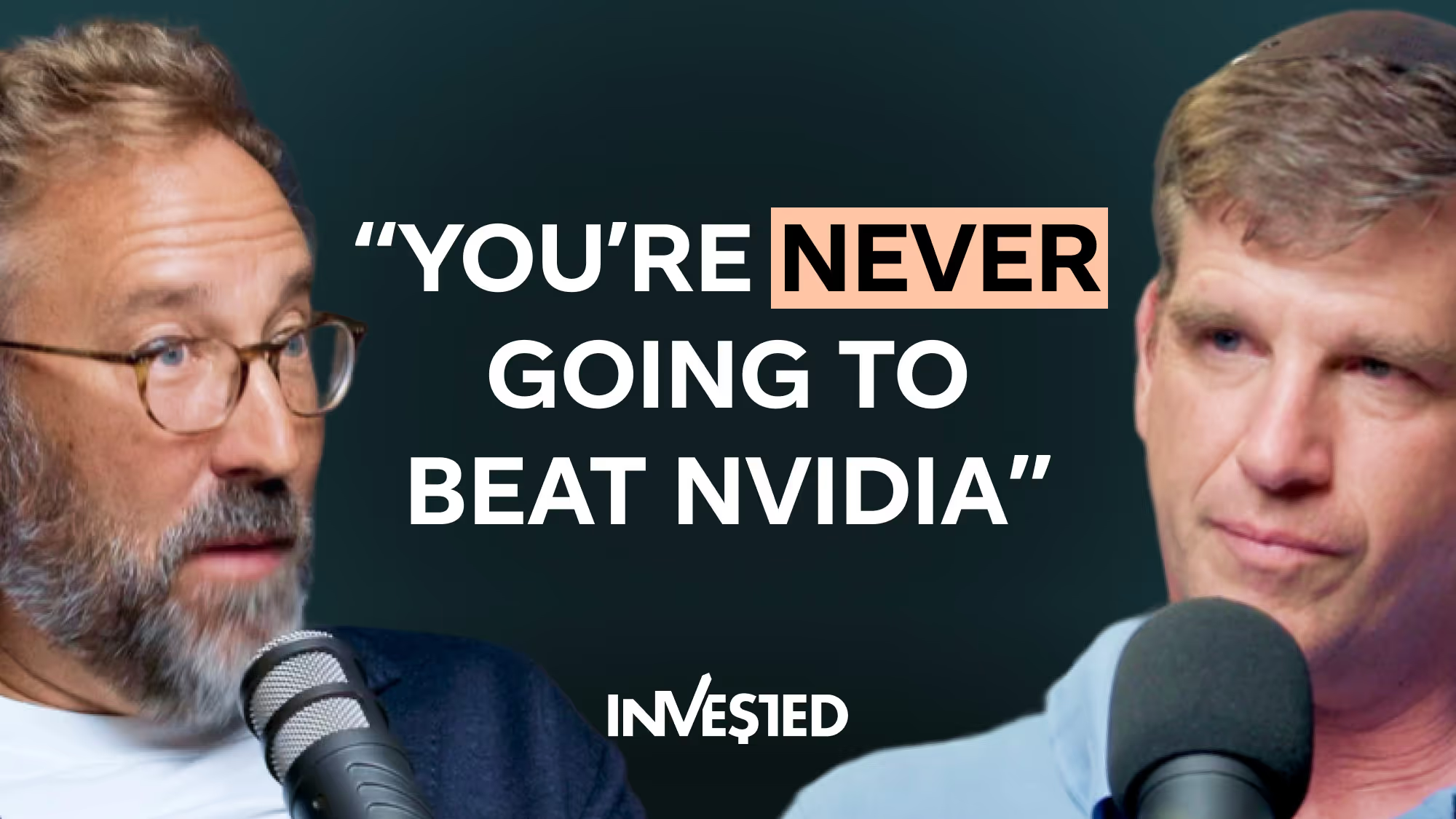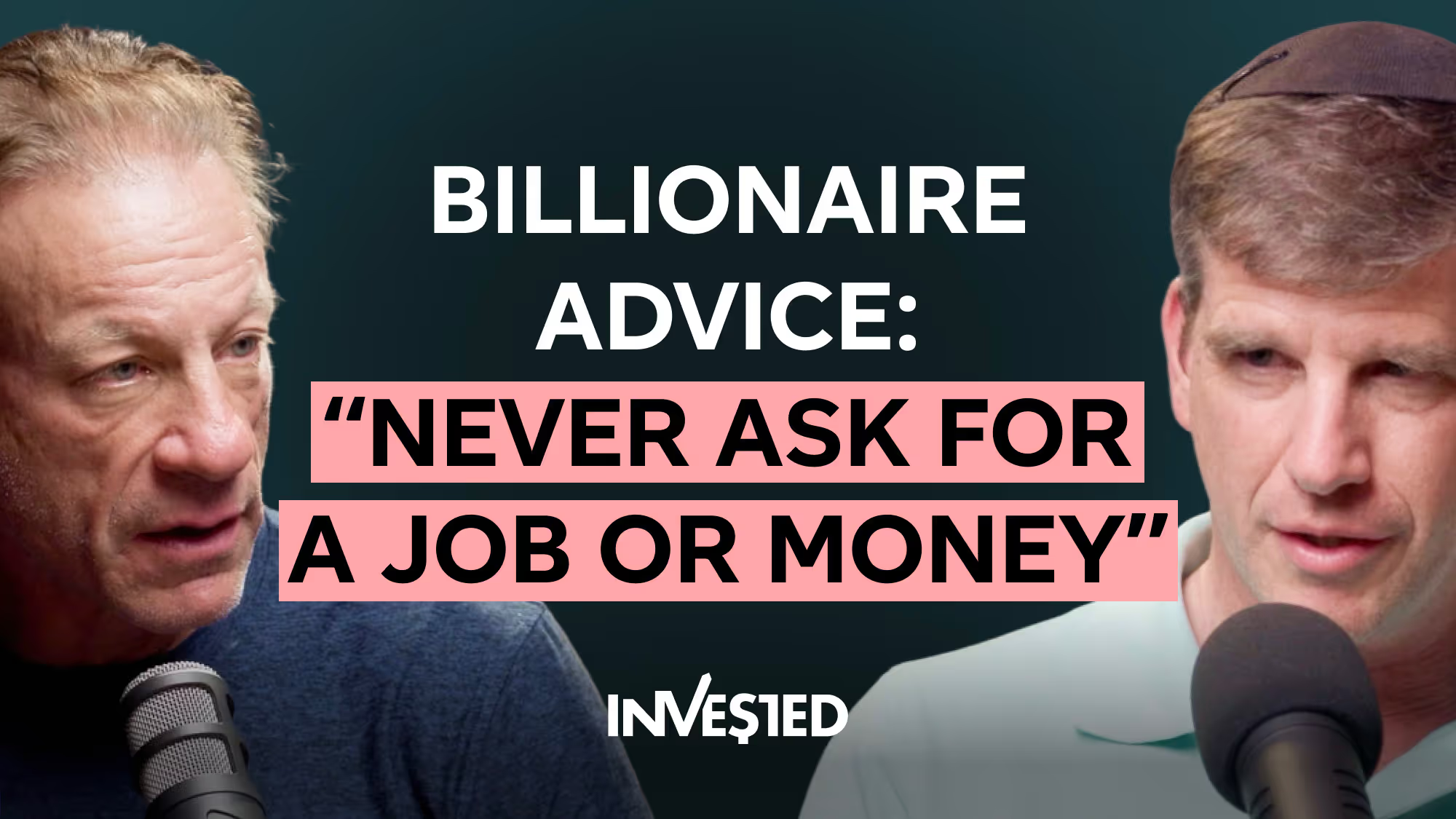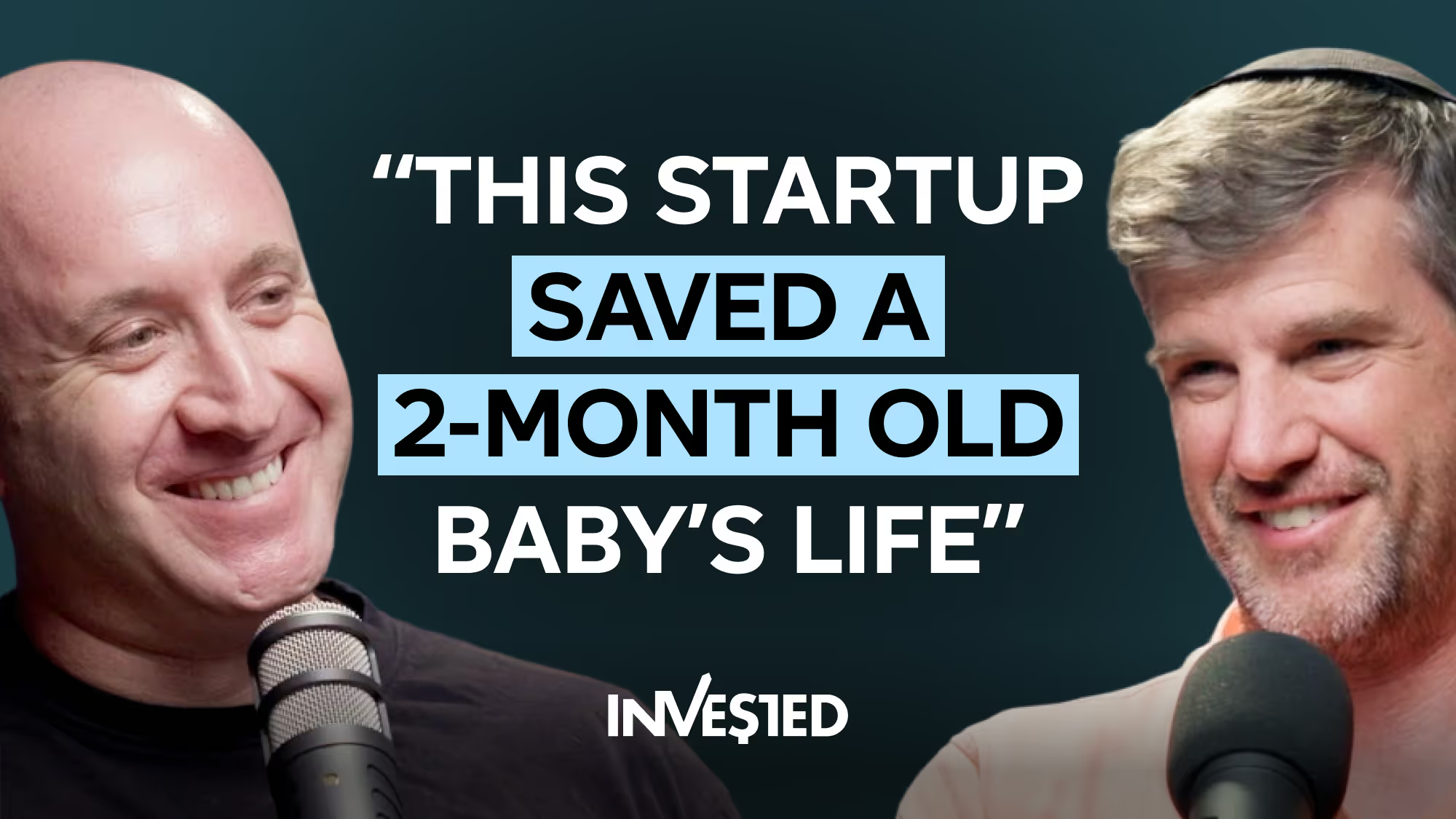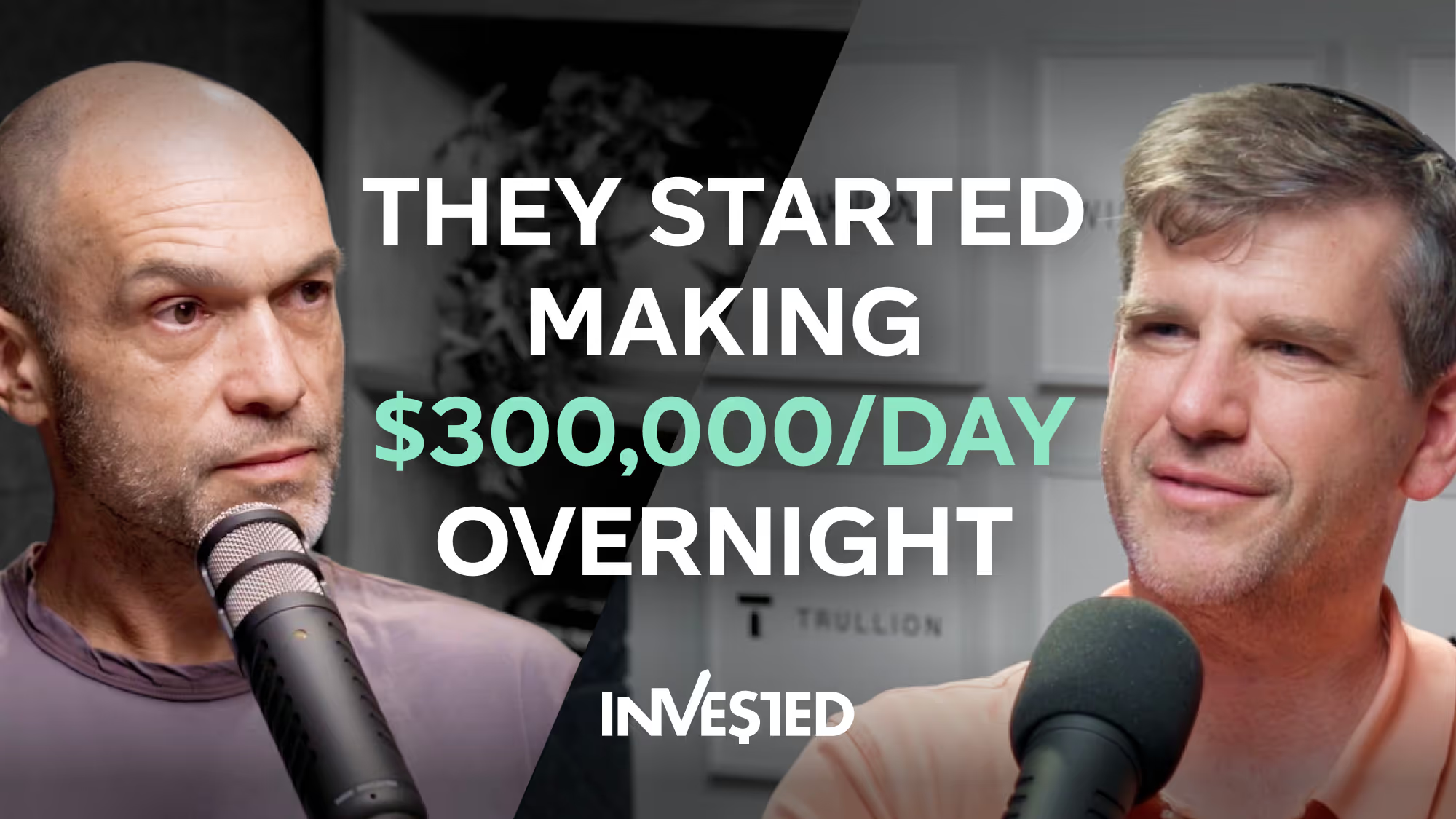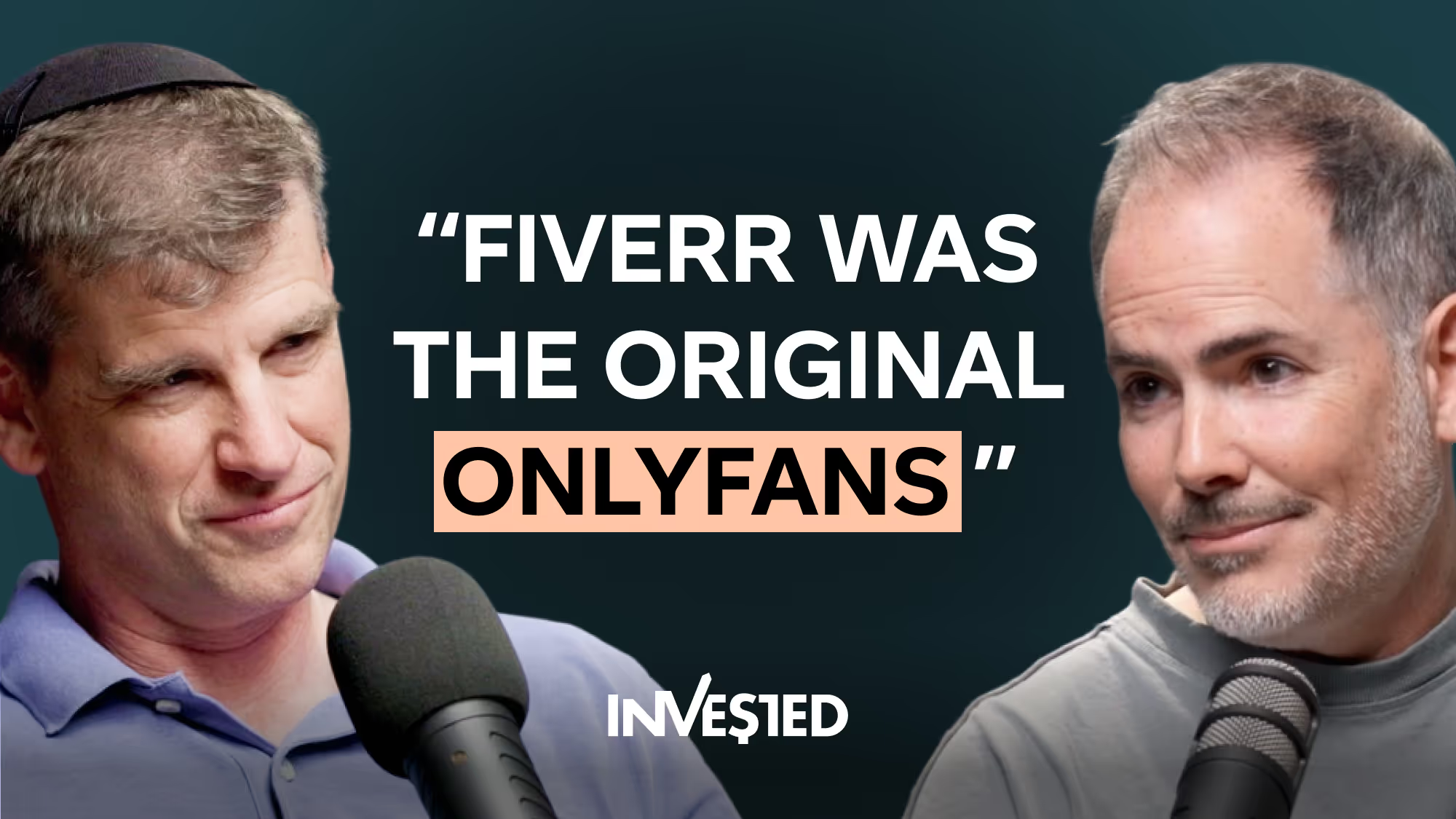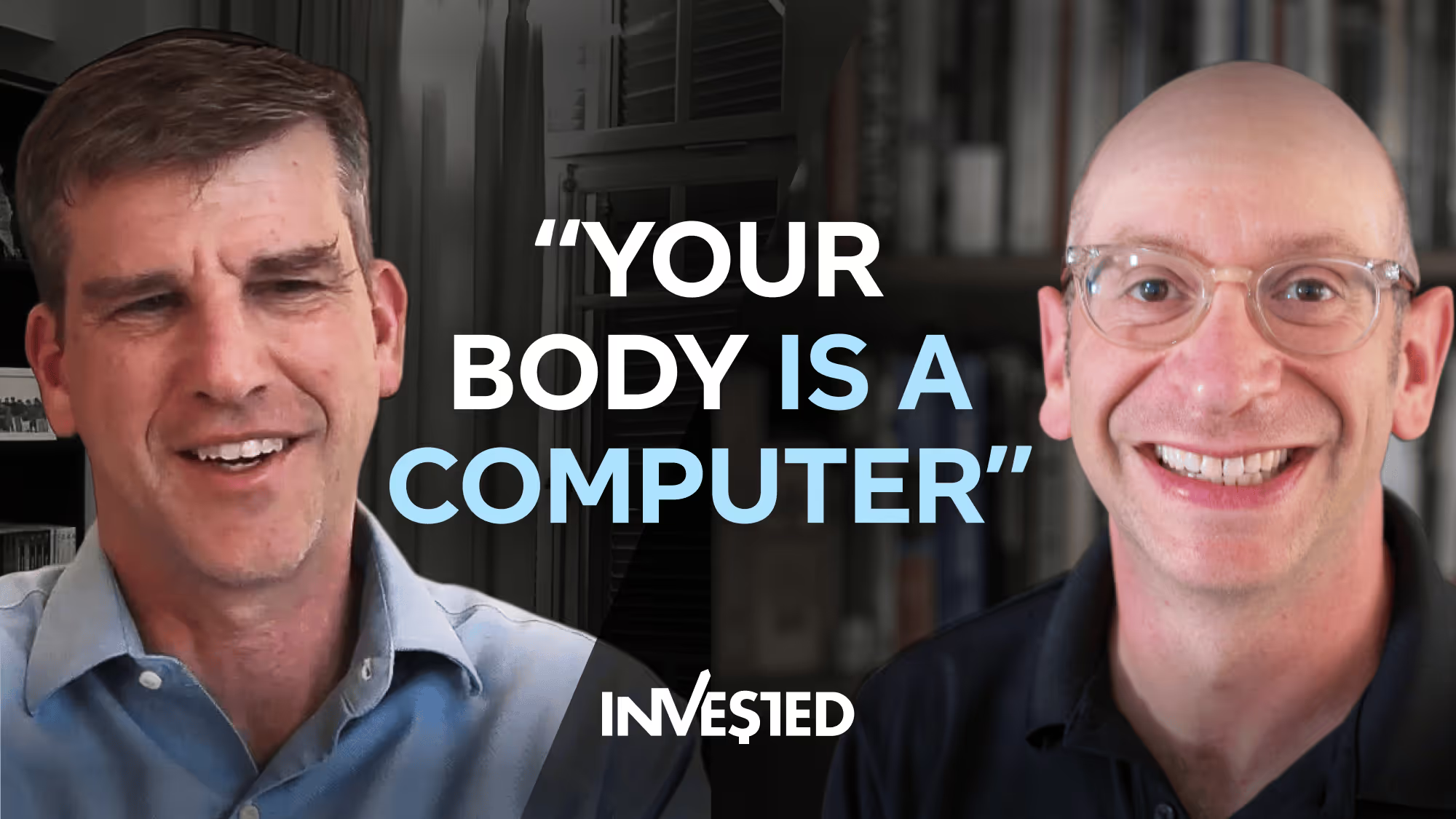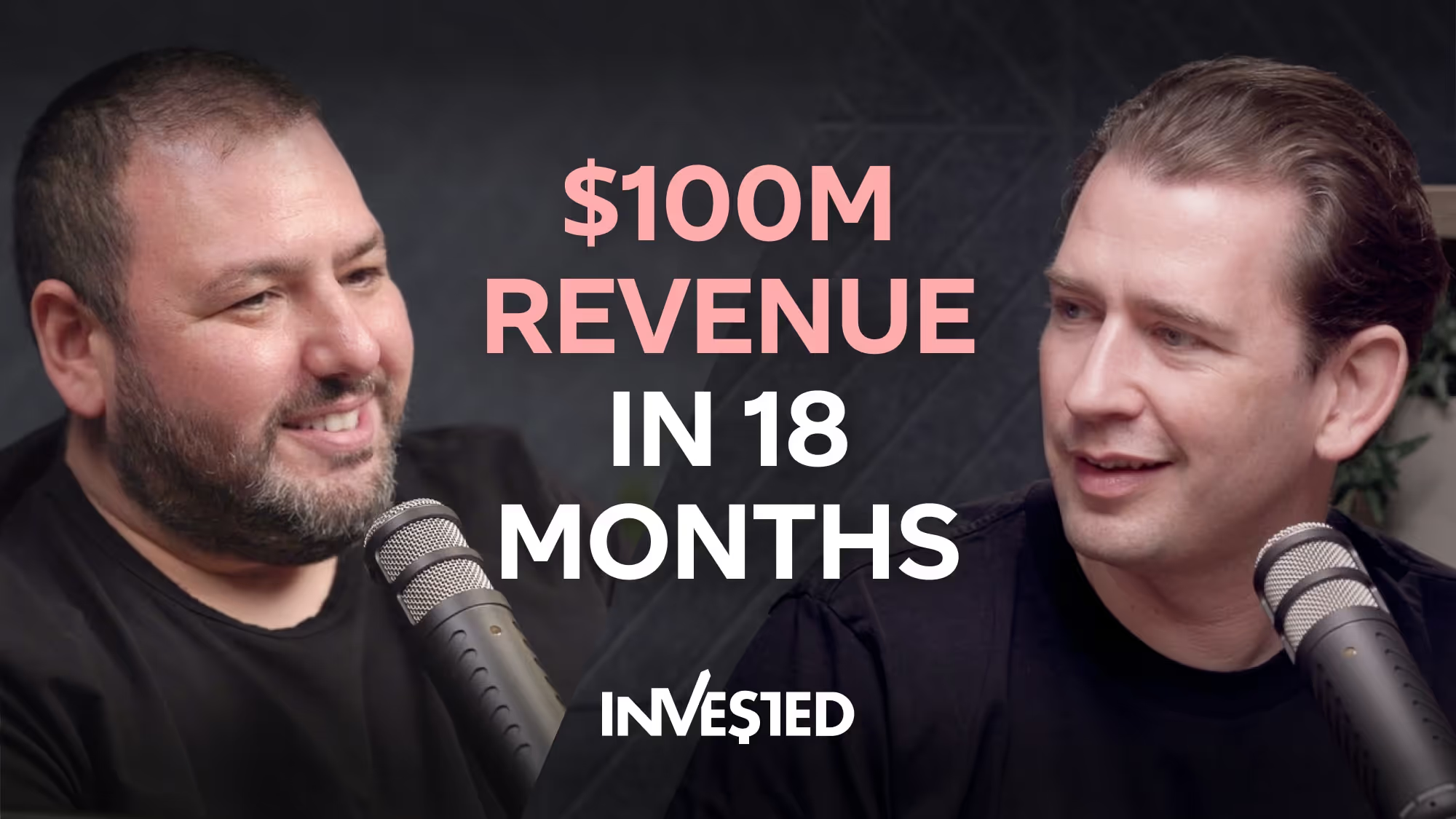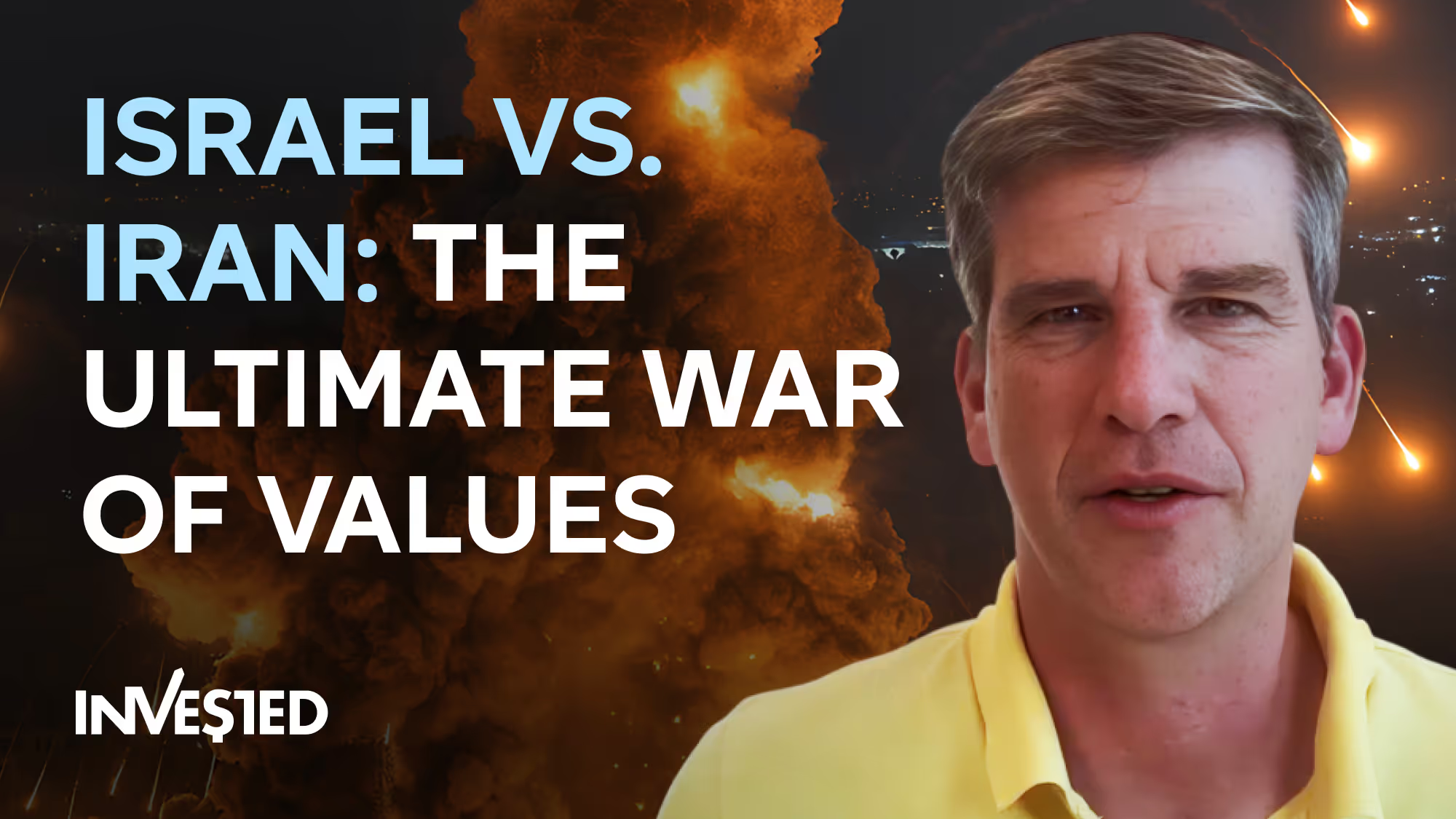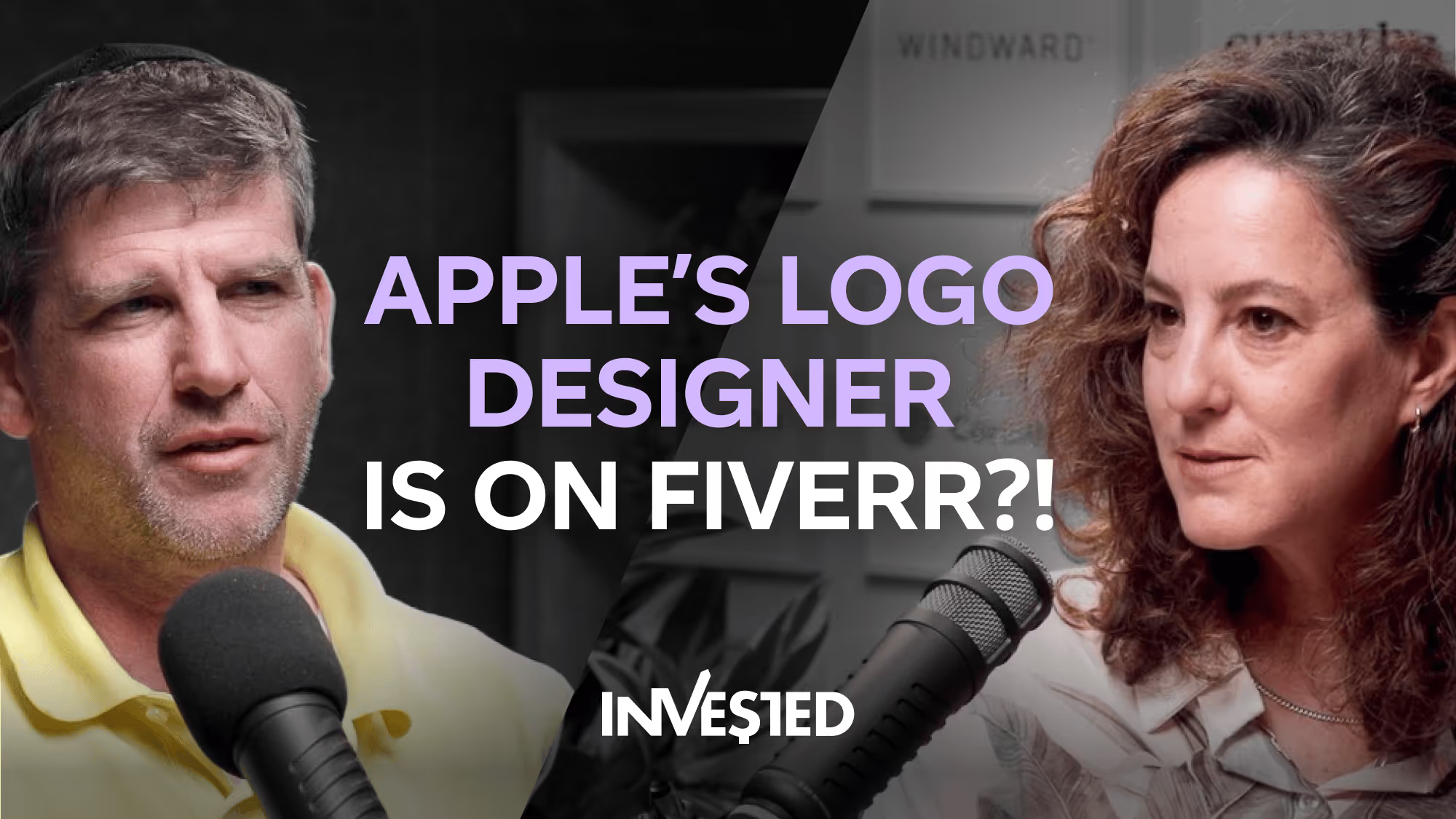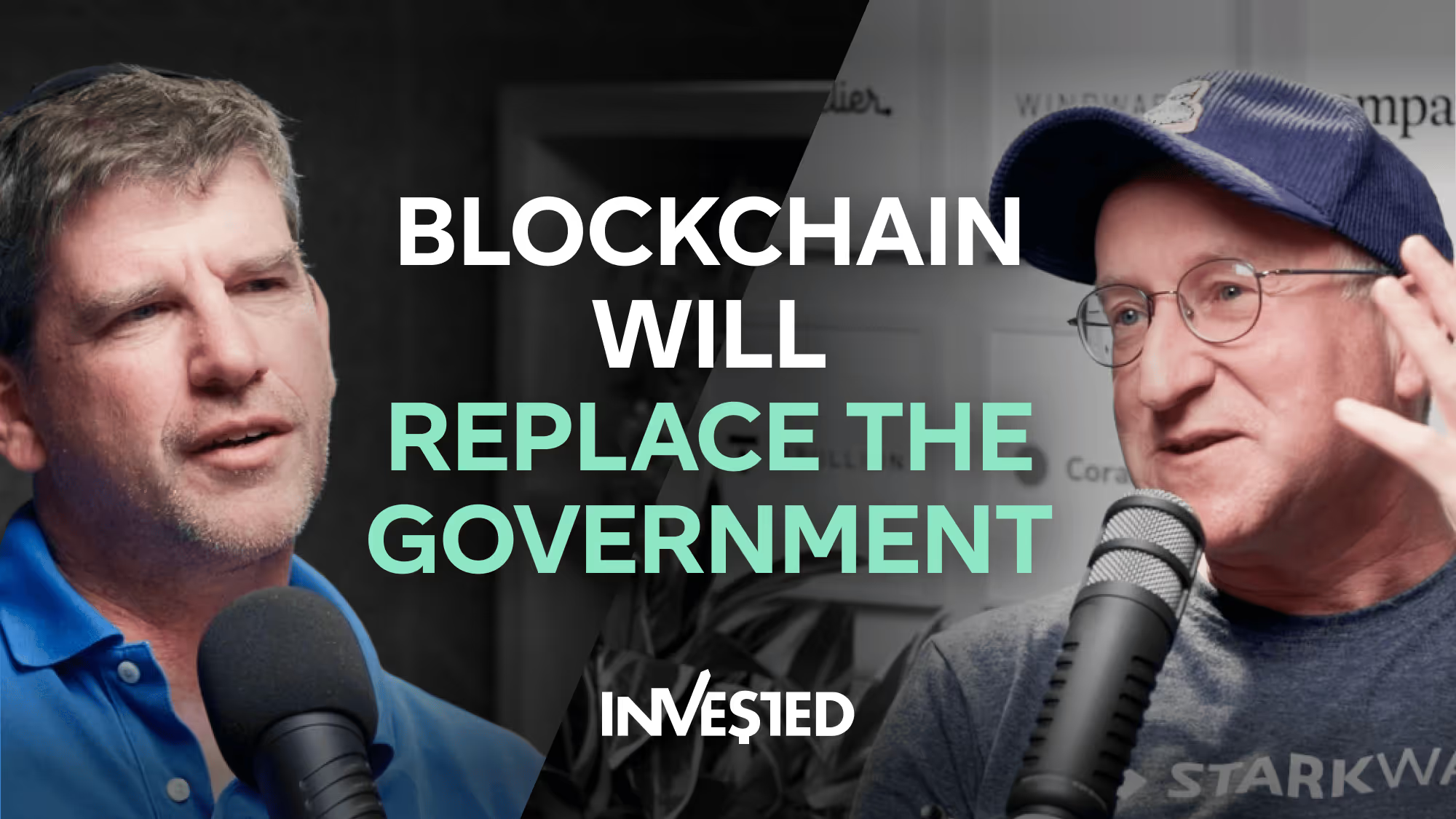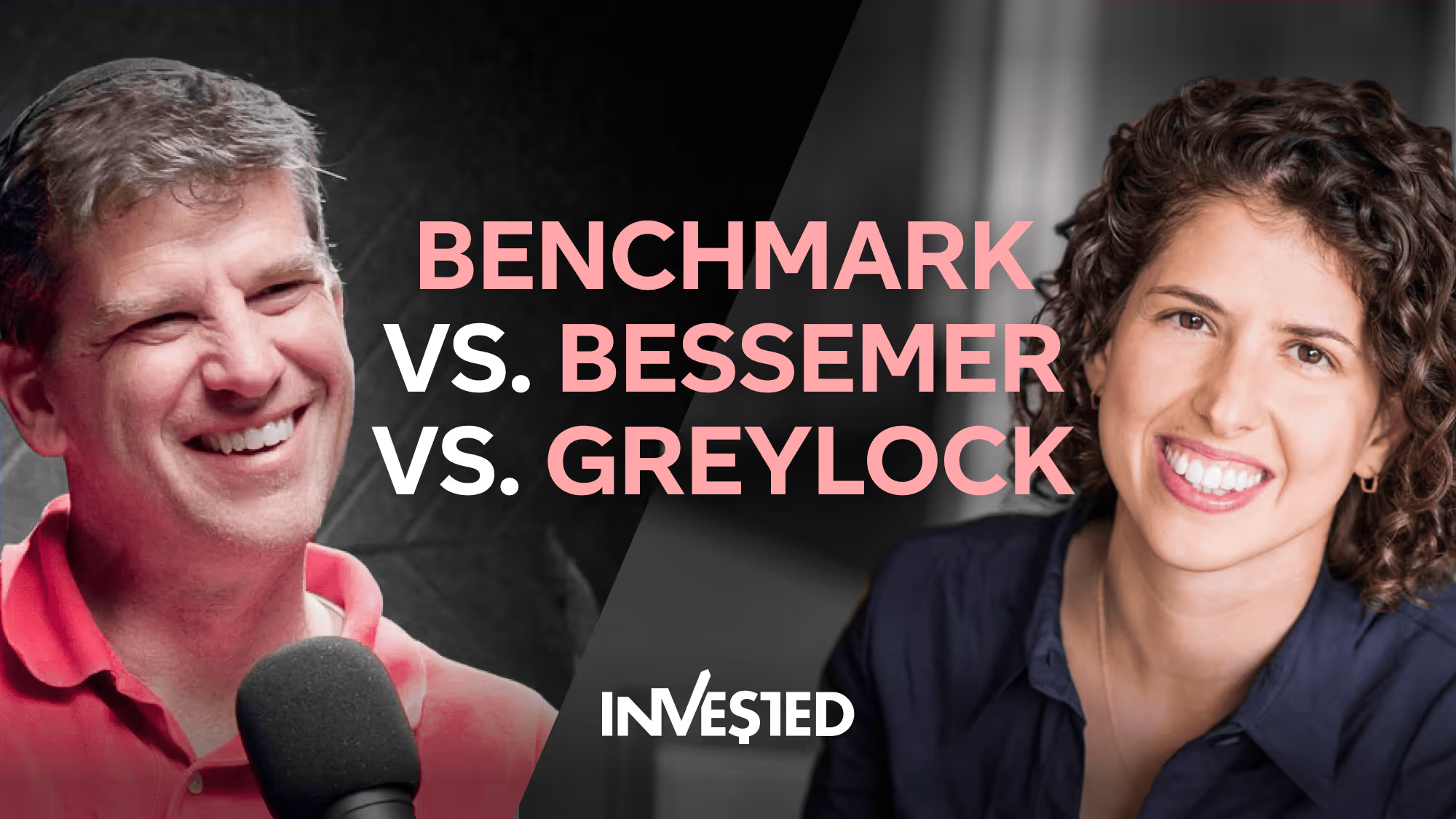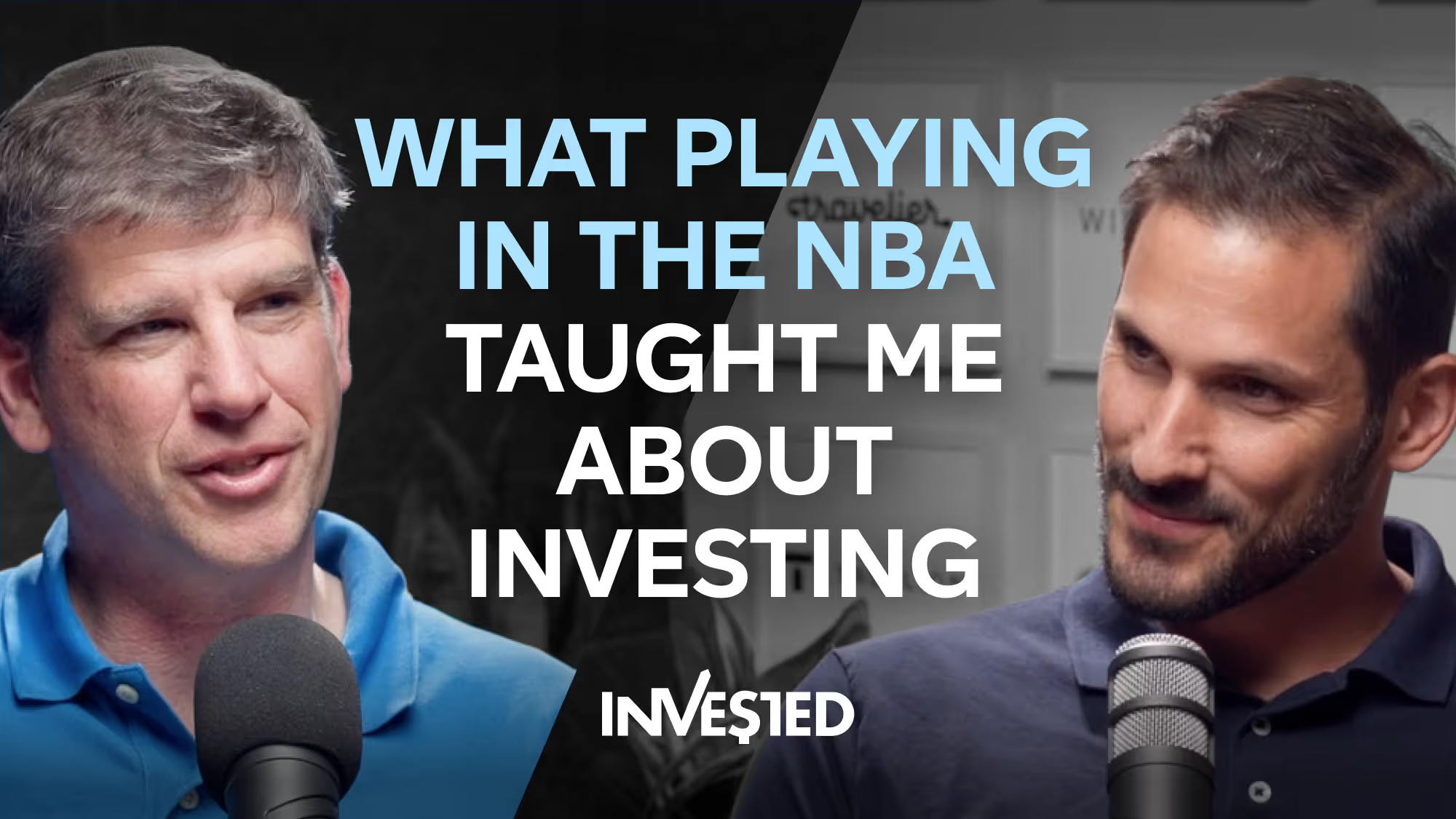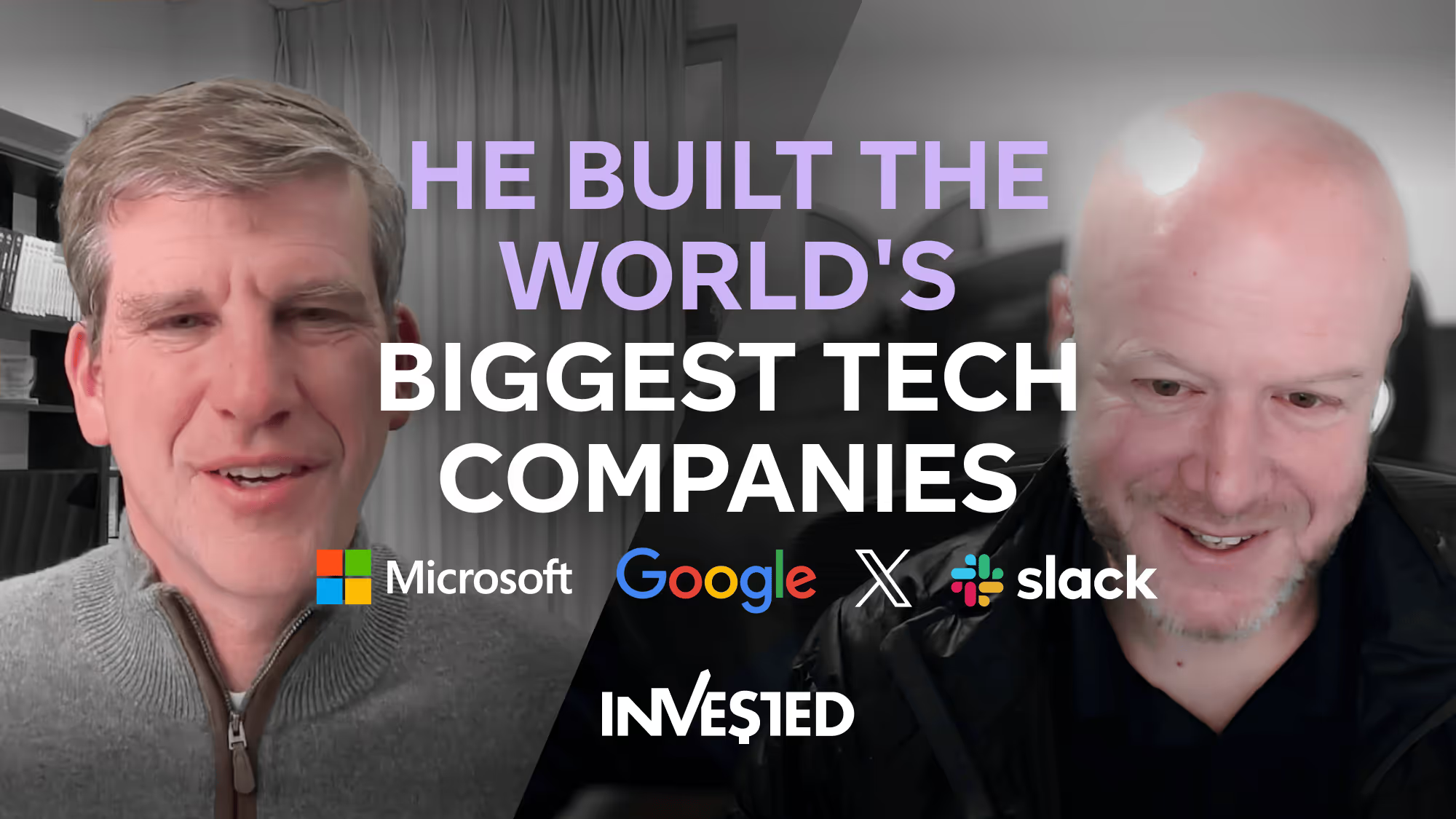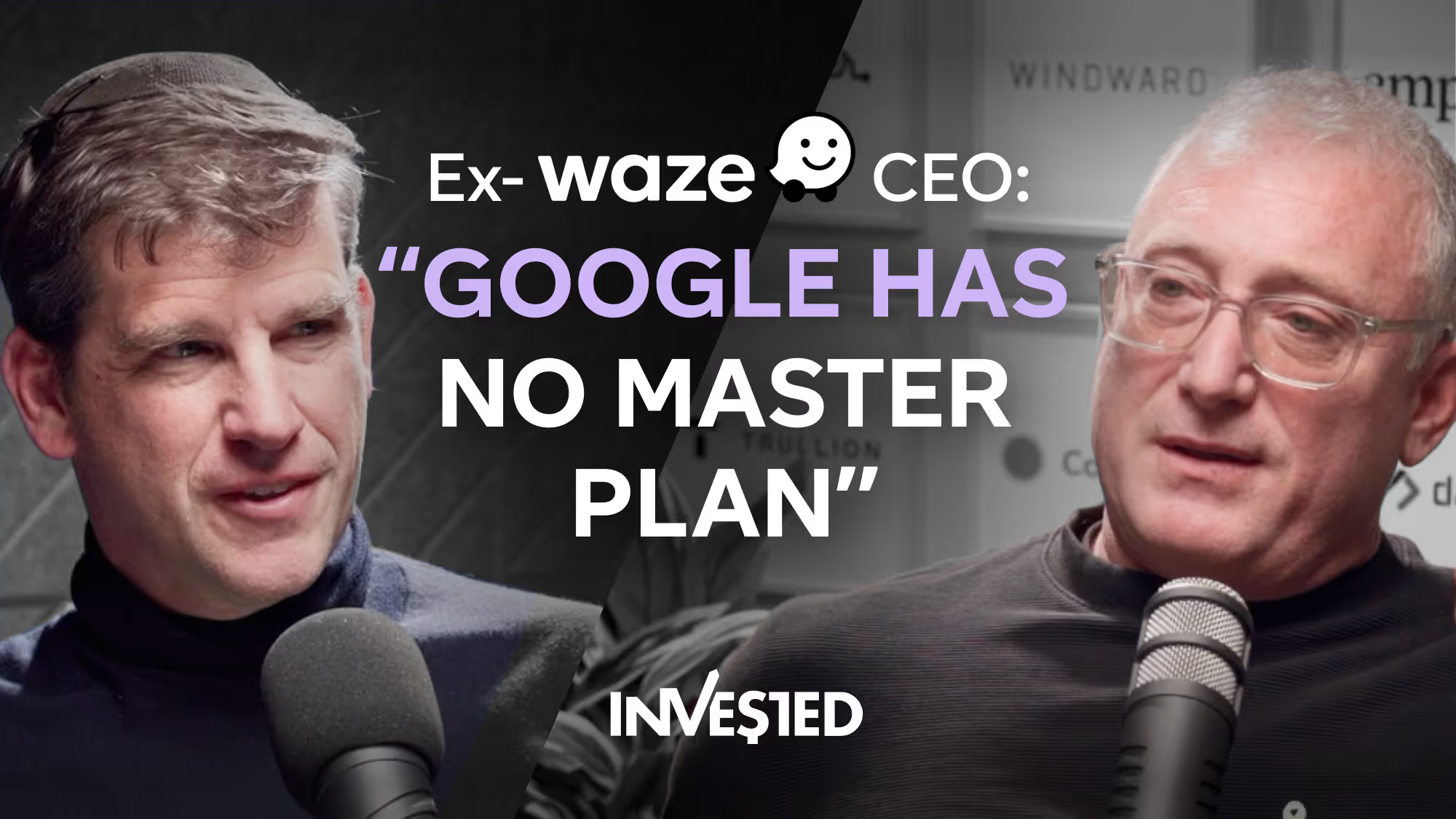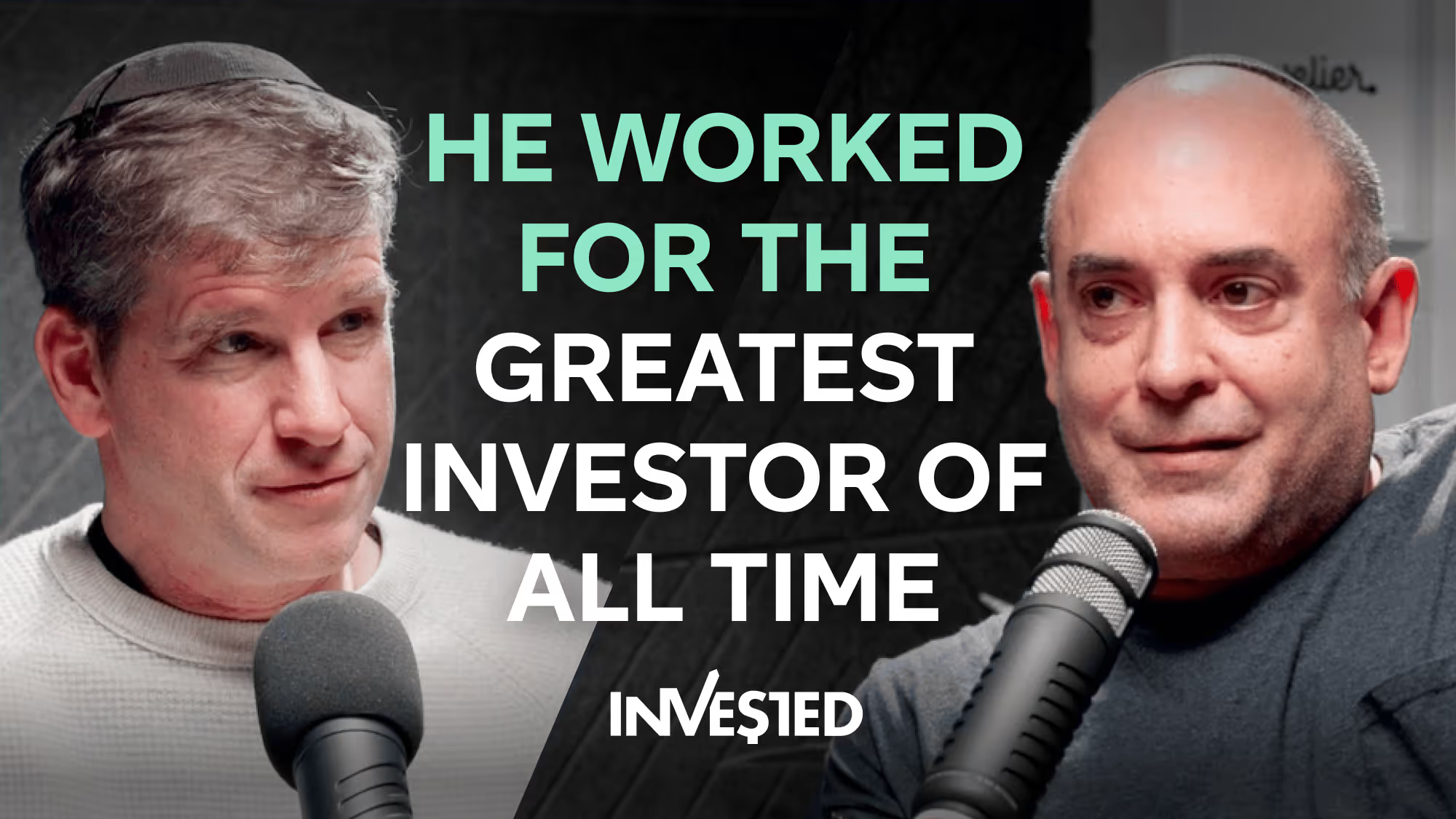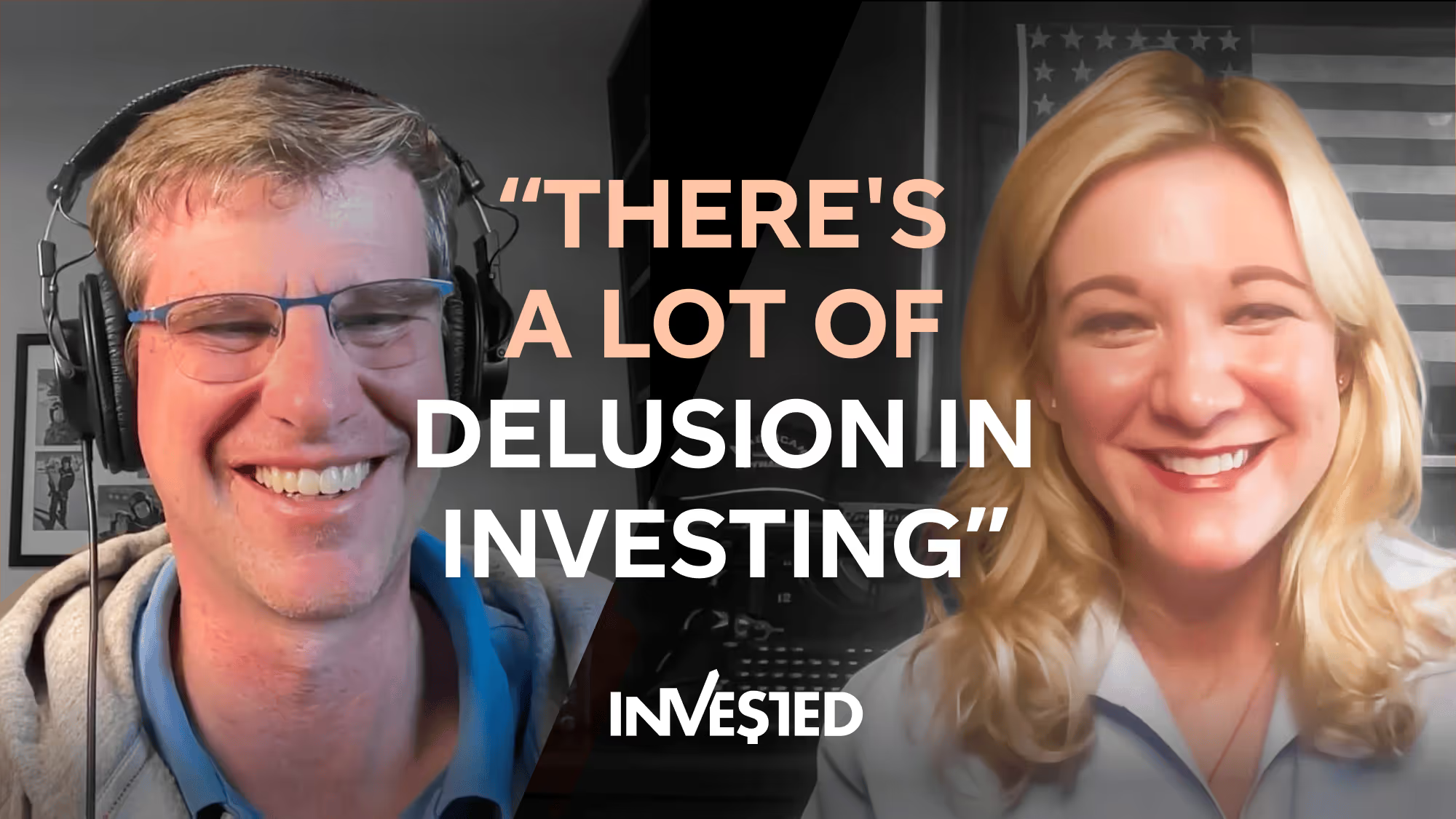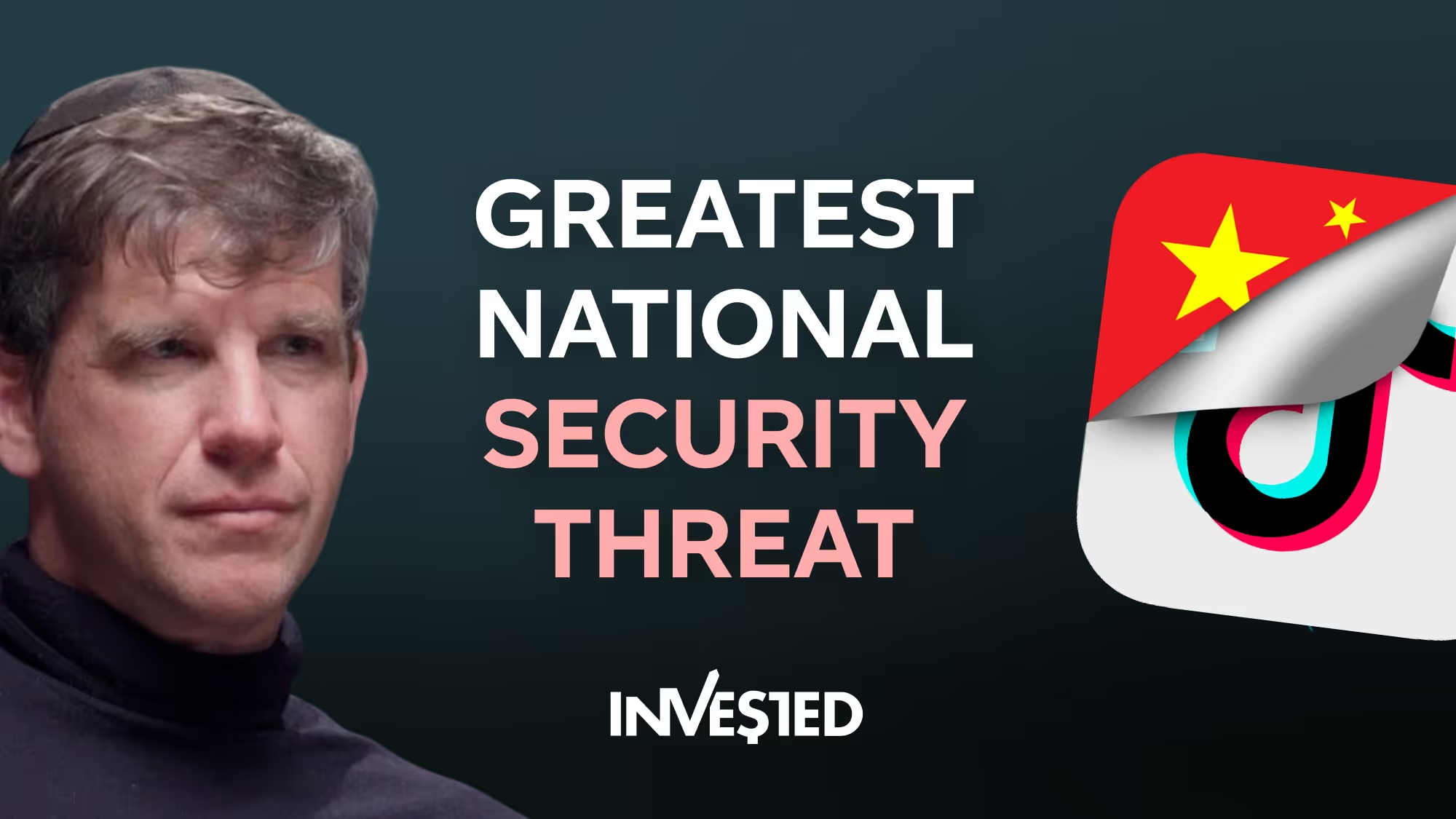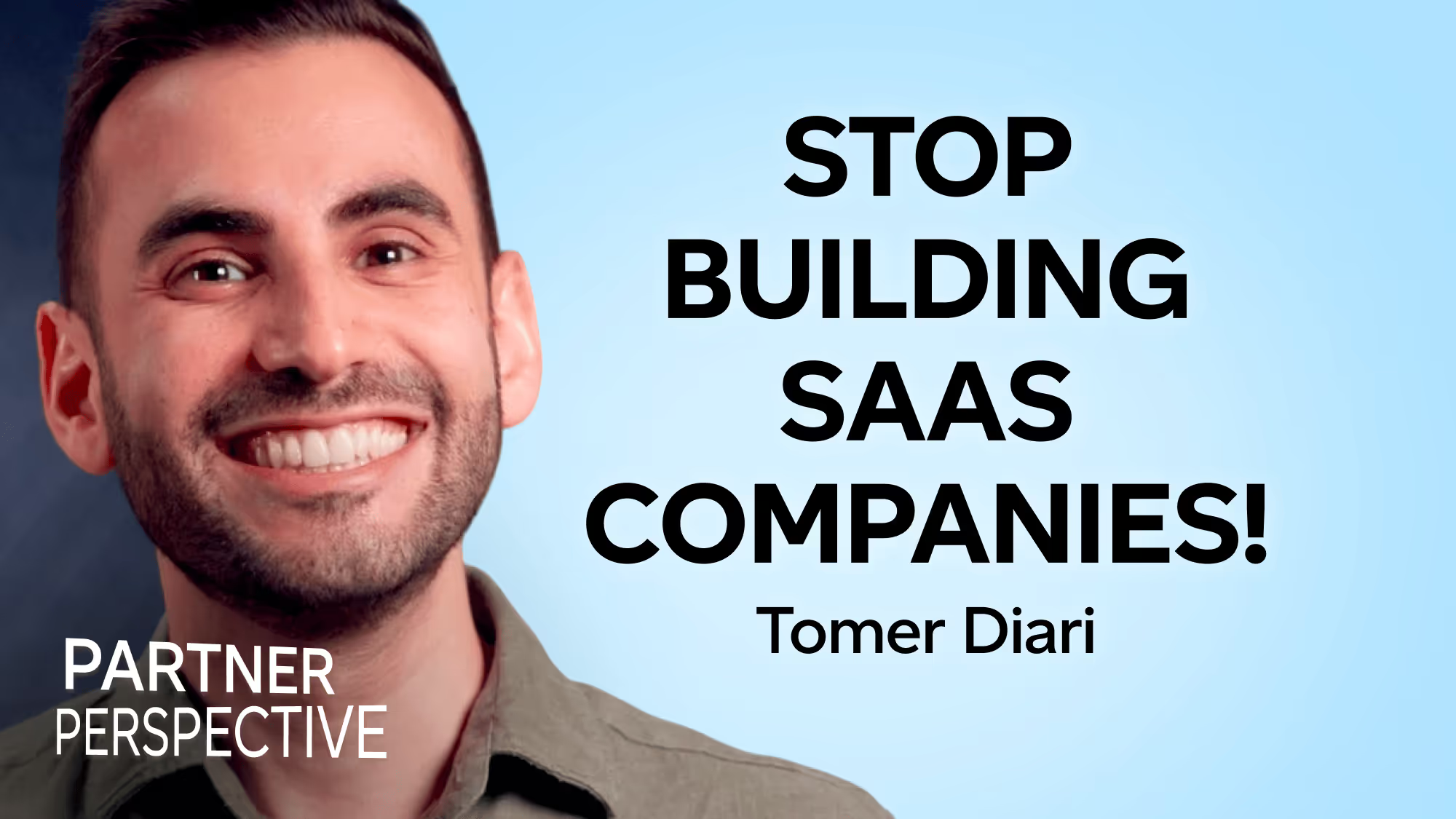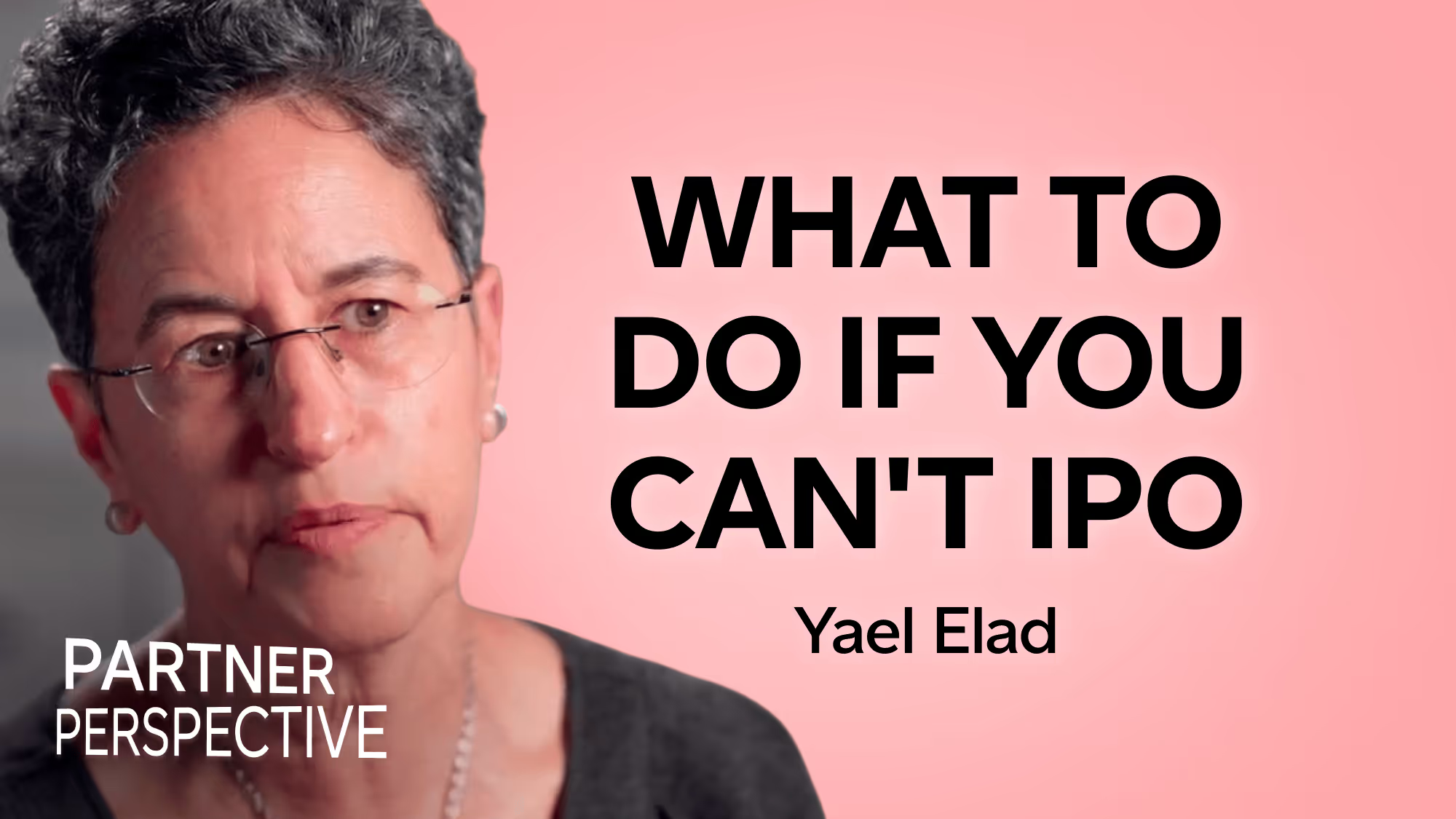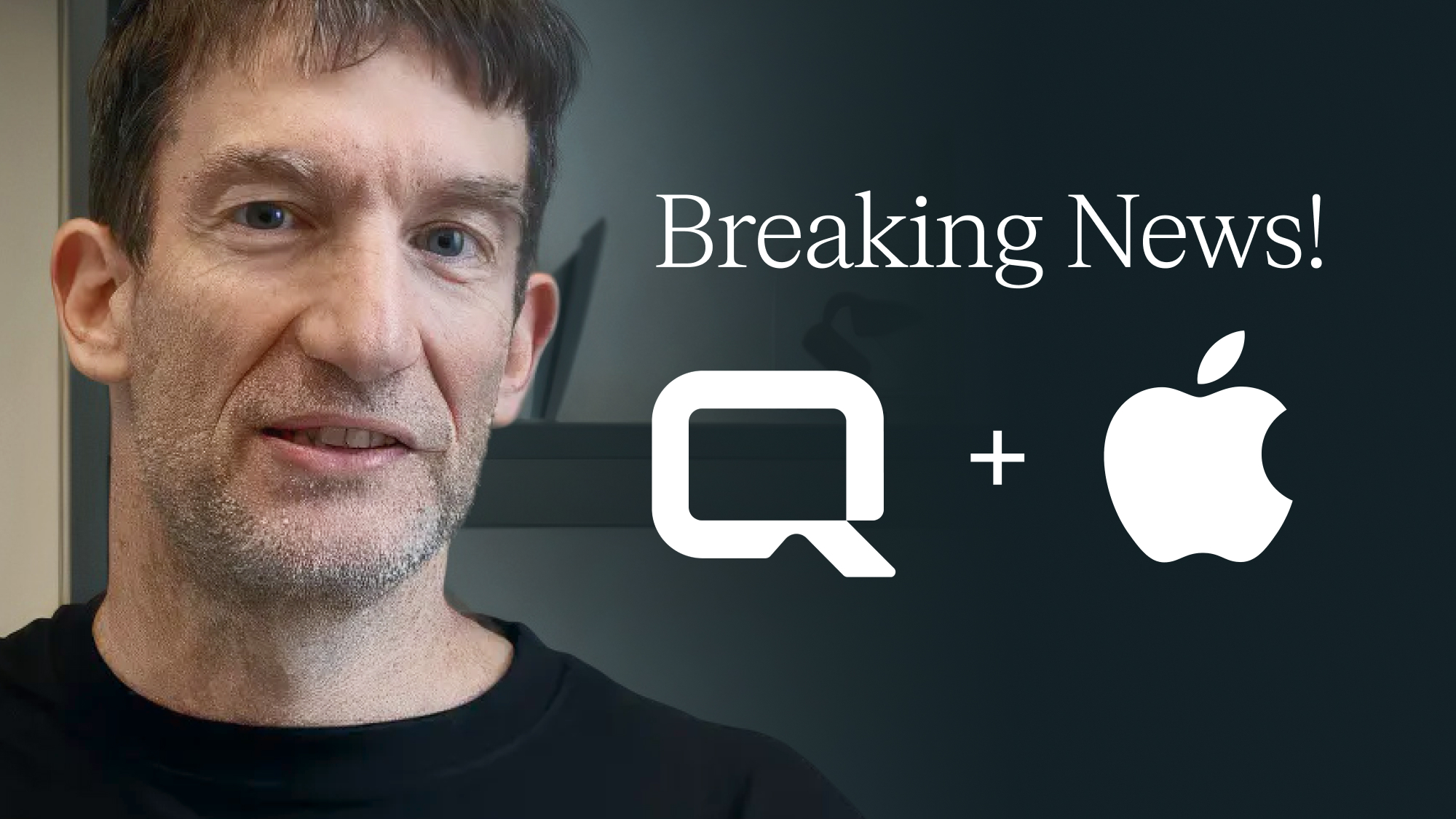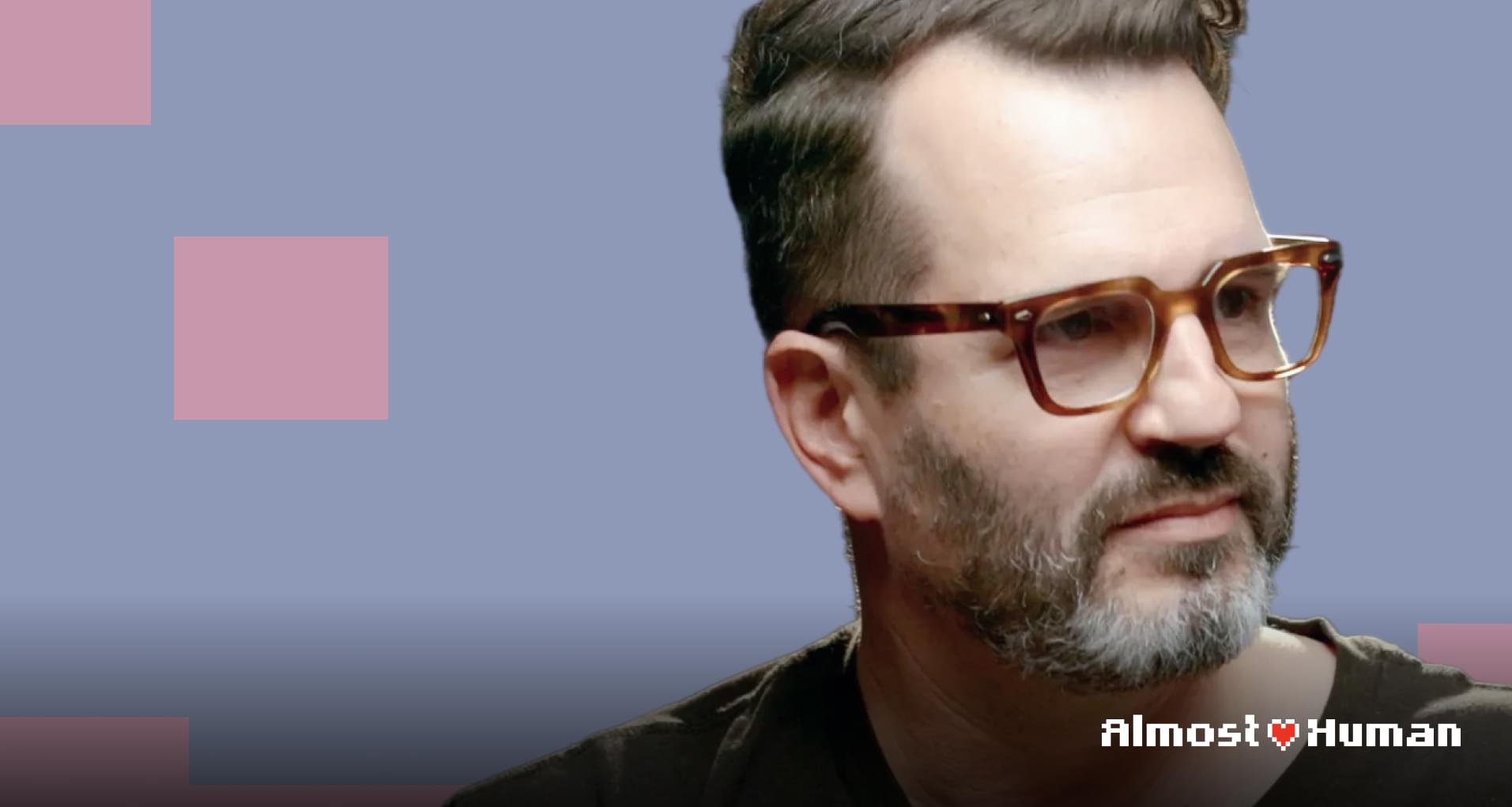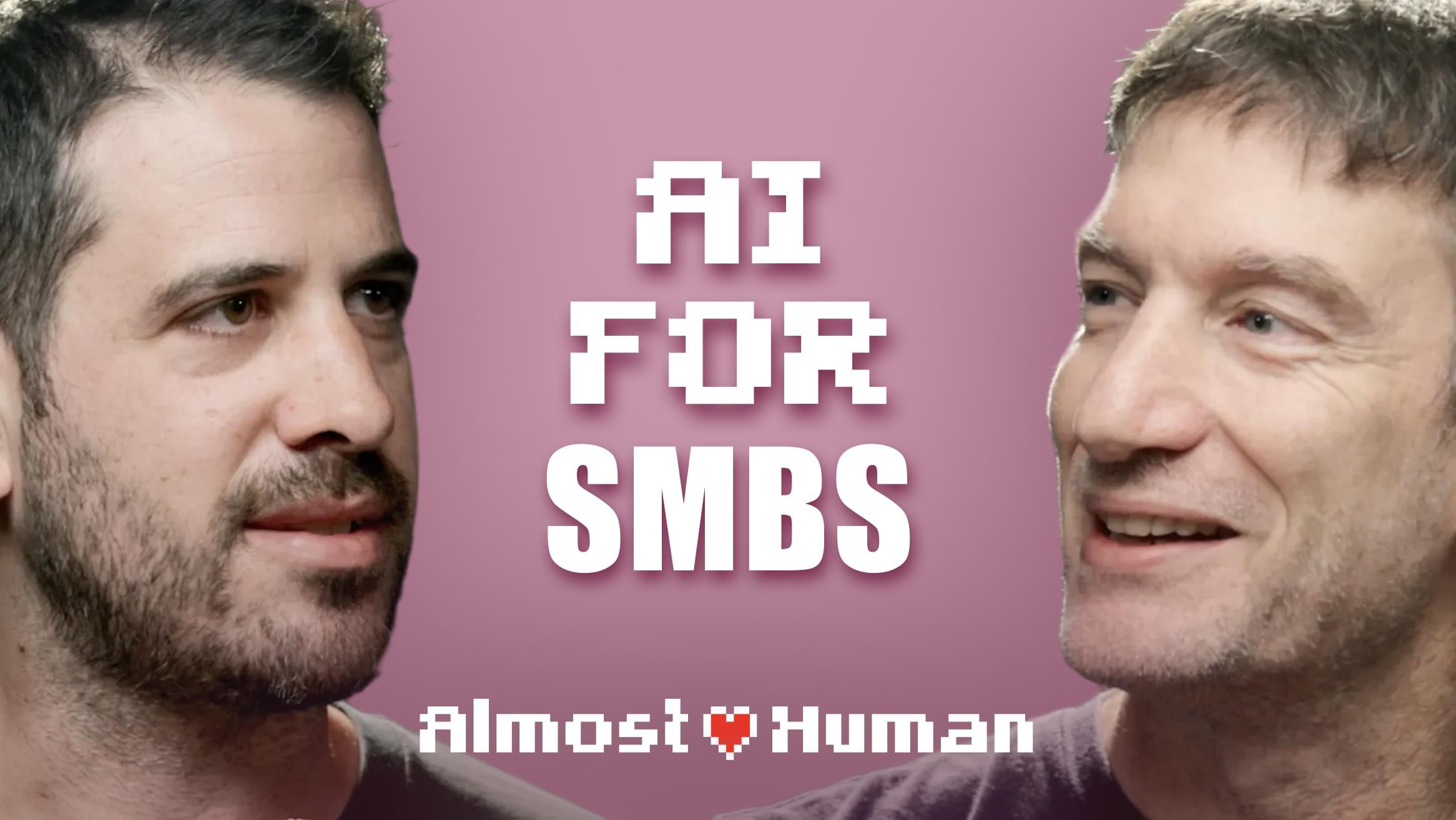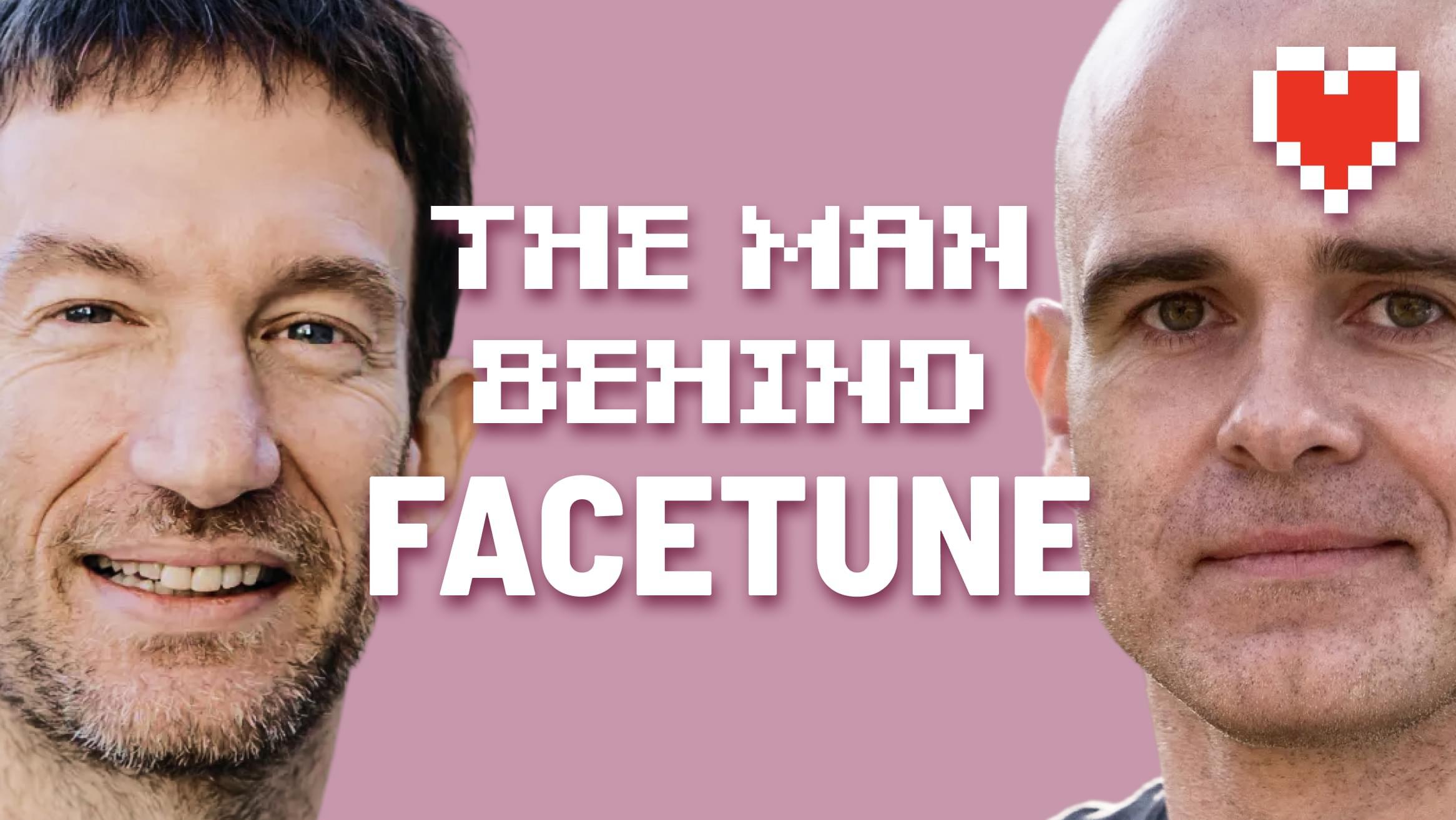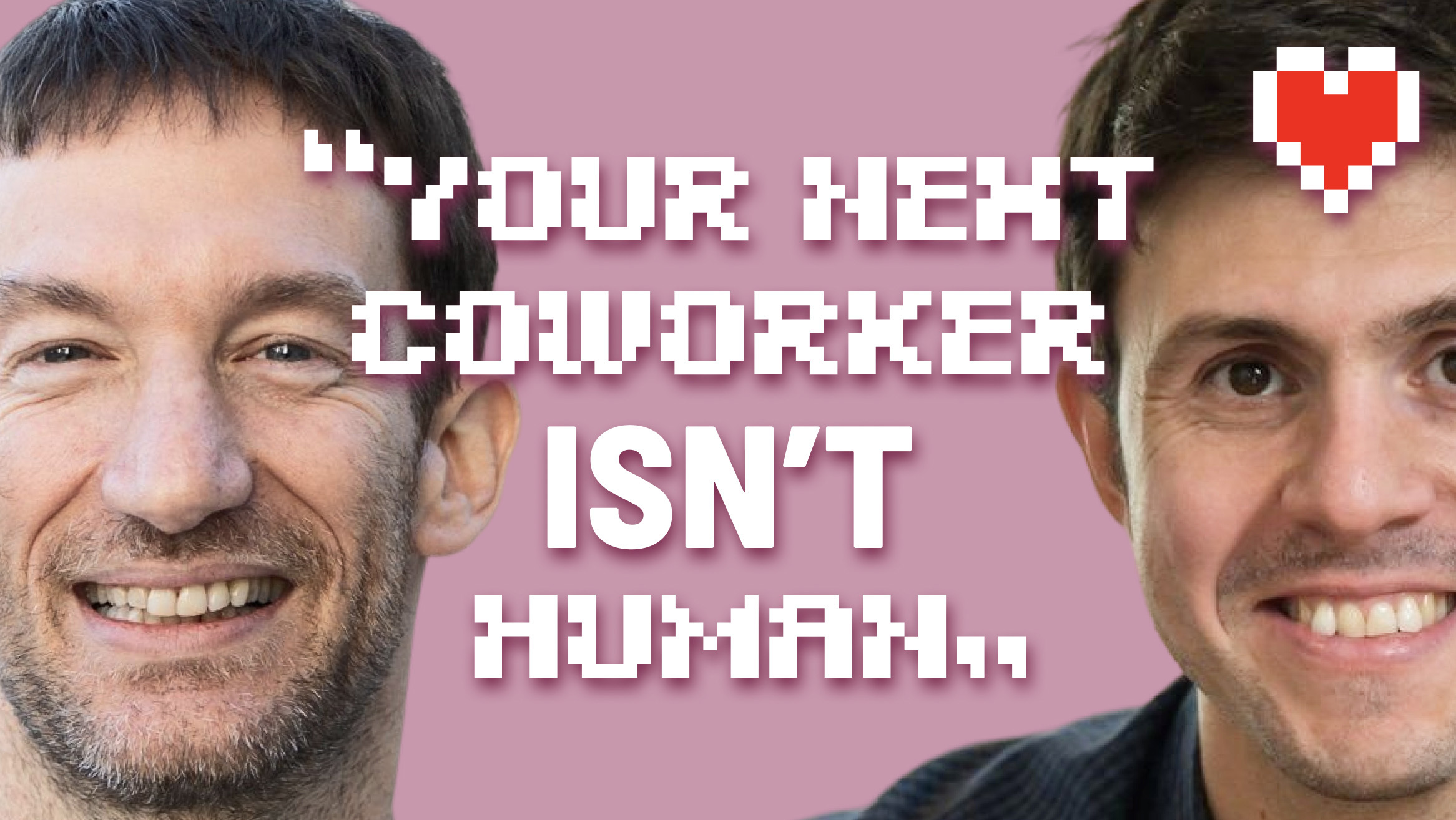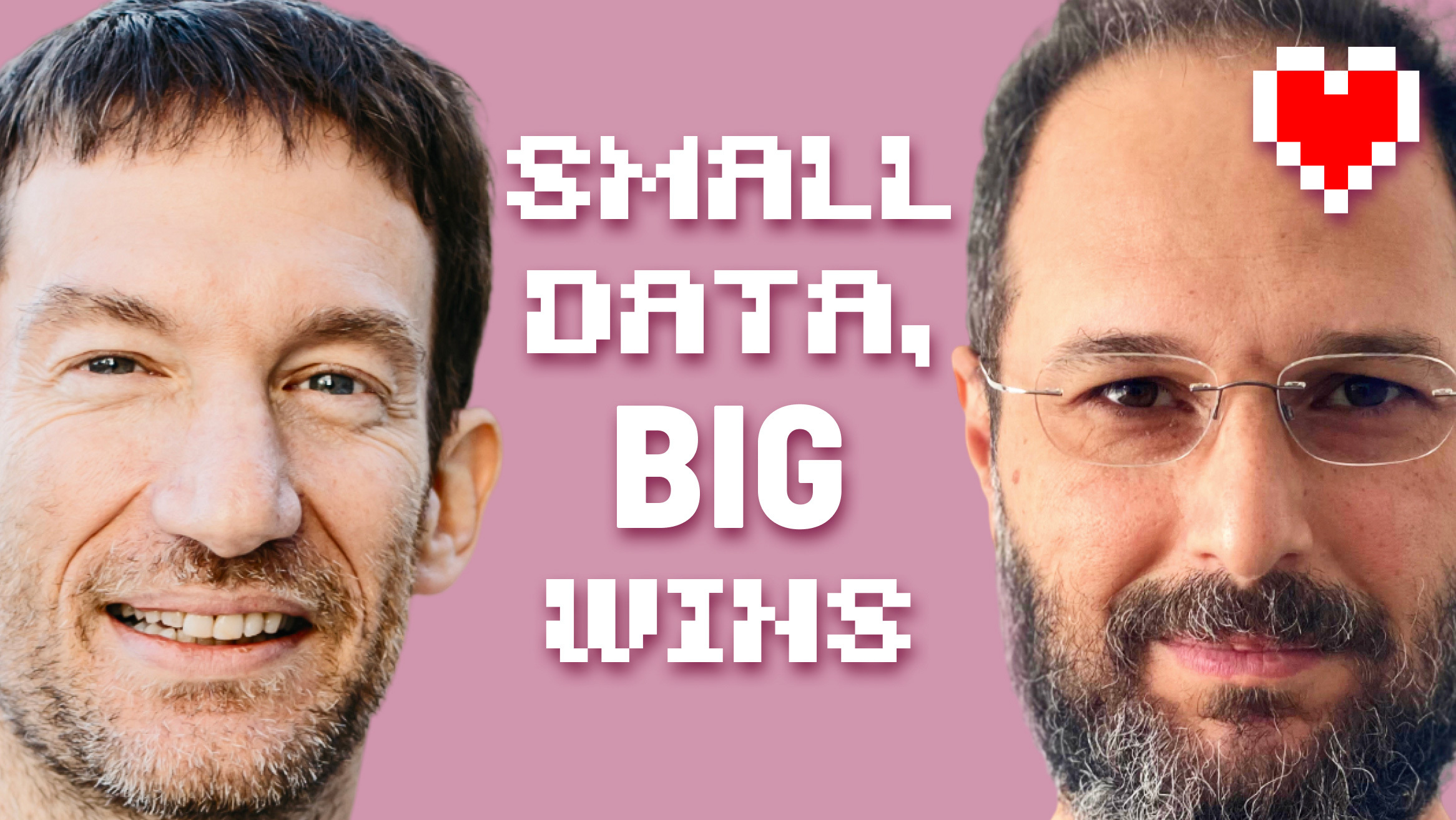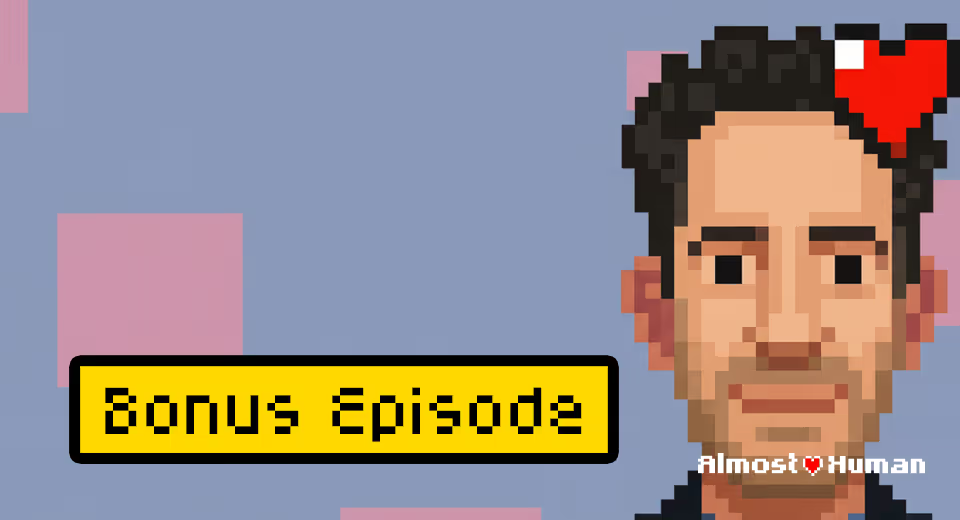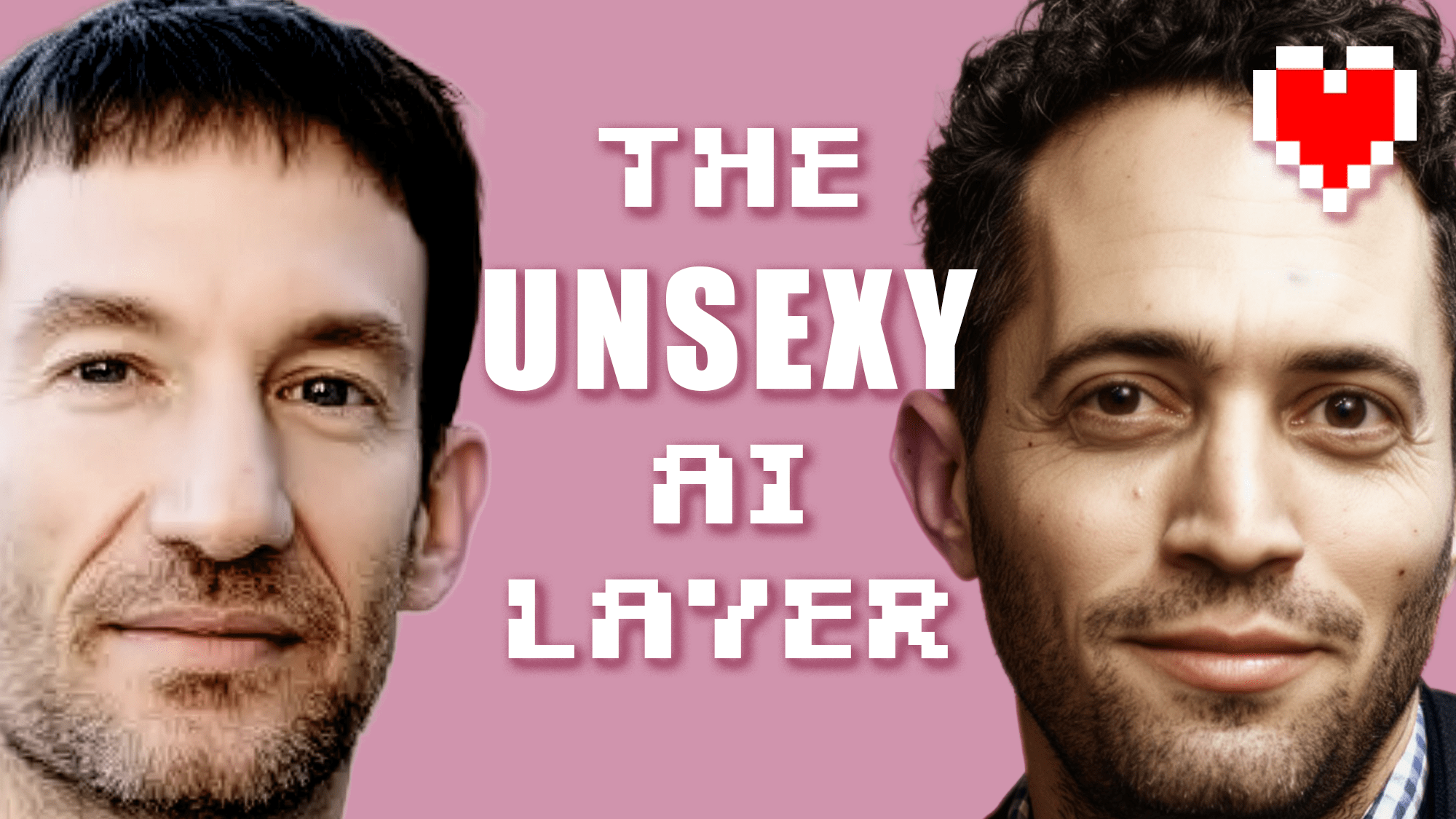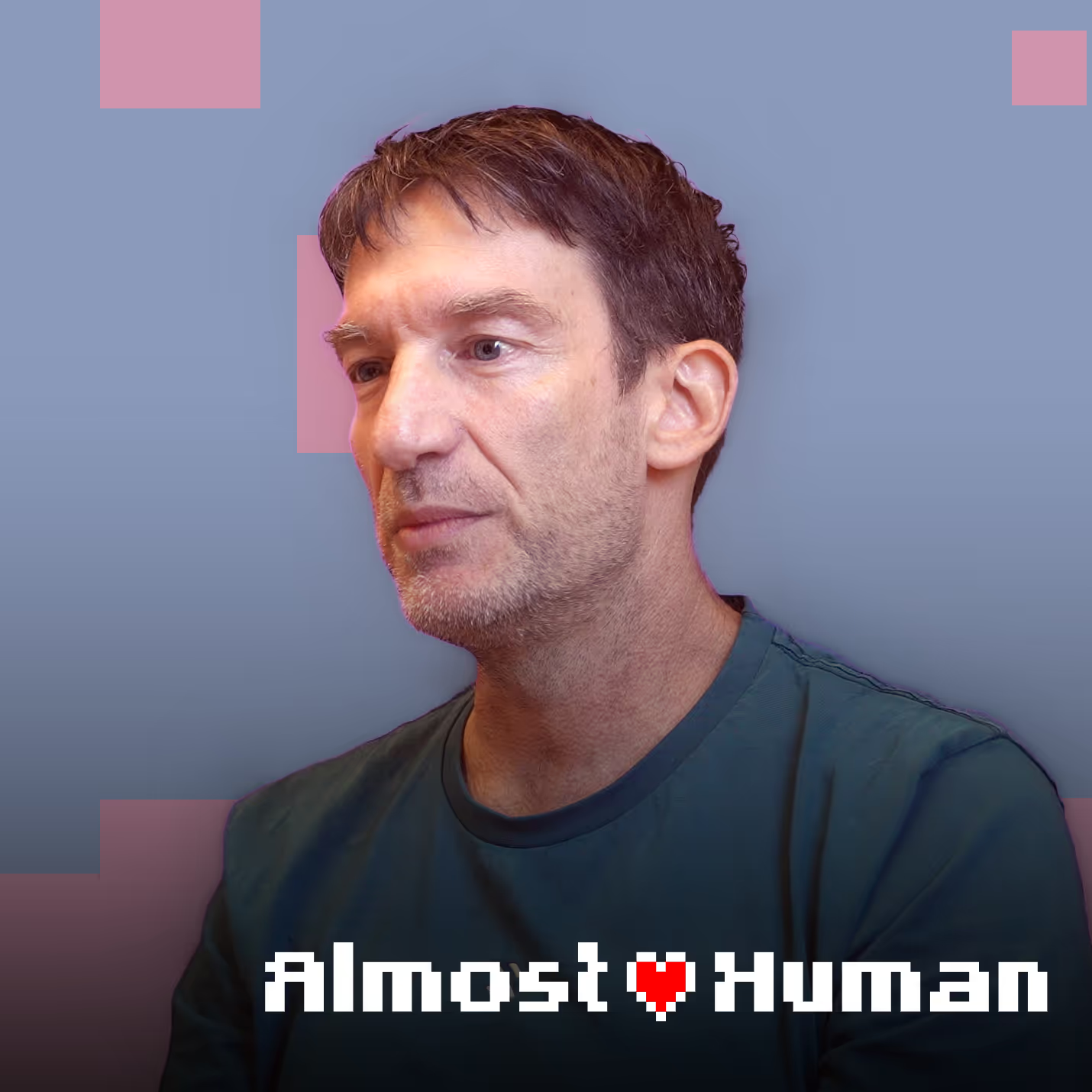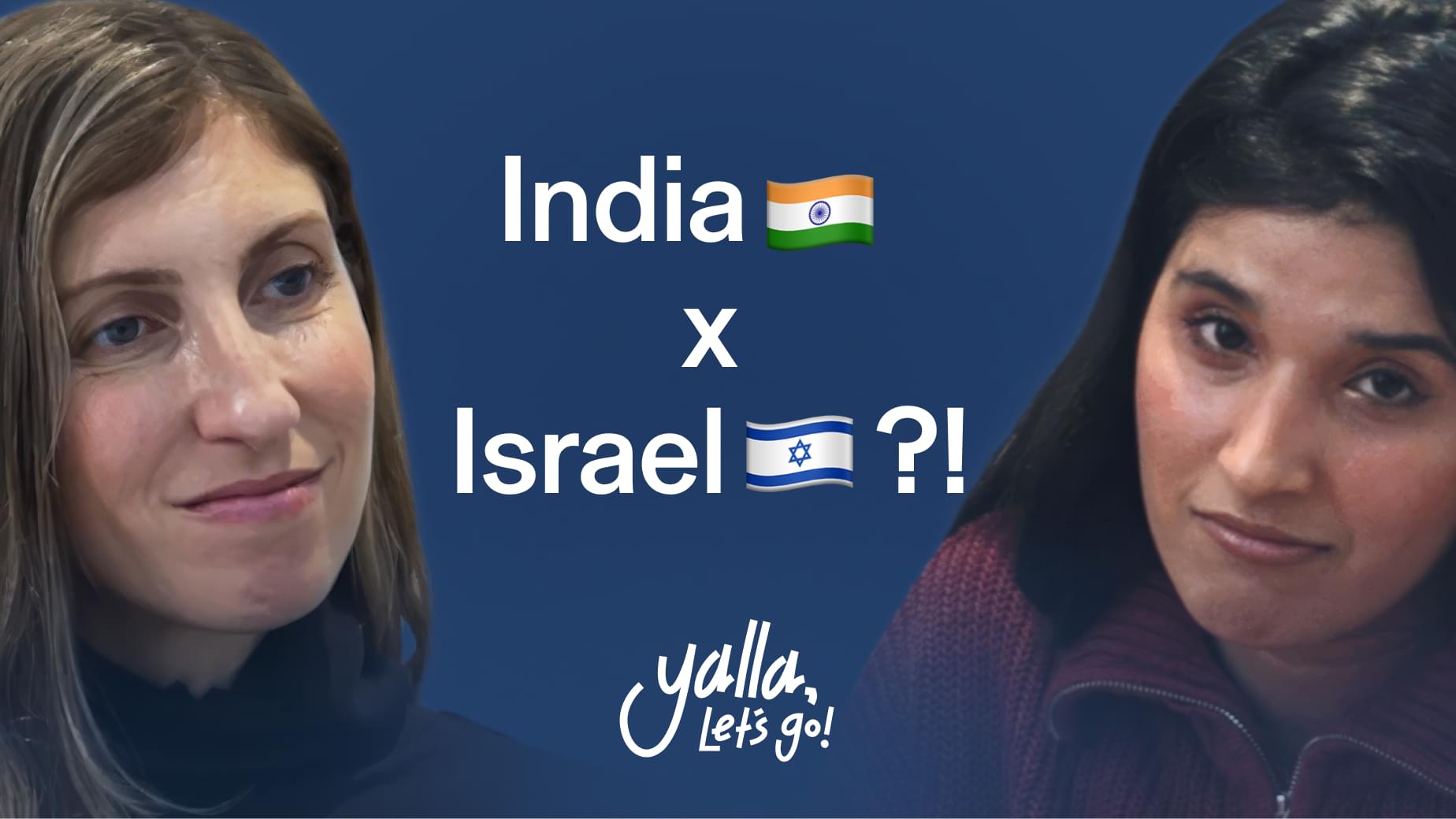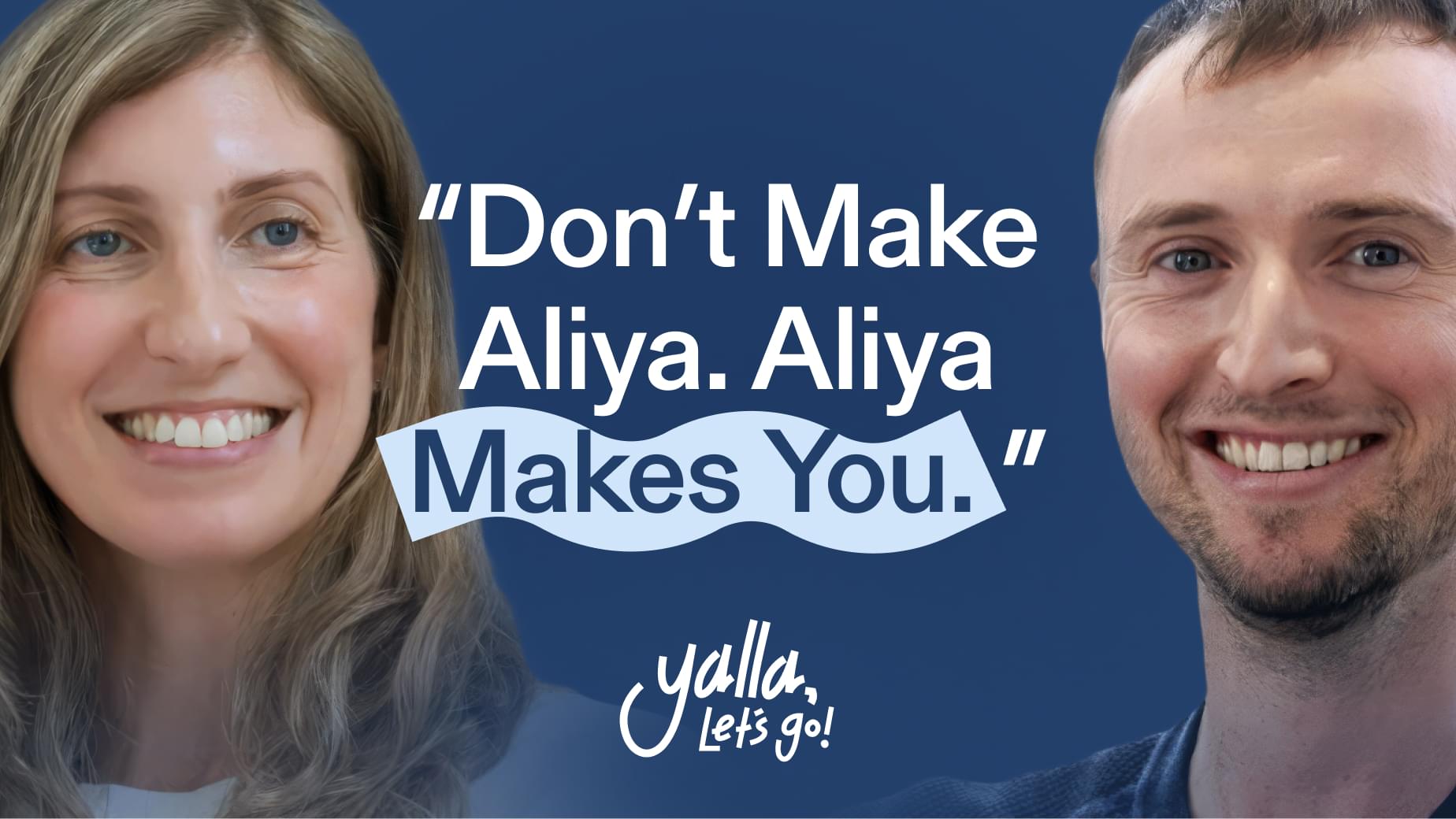Nir Zohar
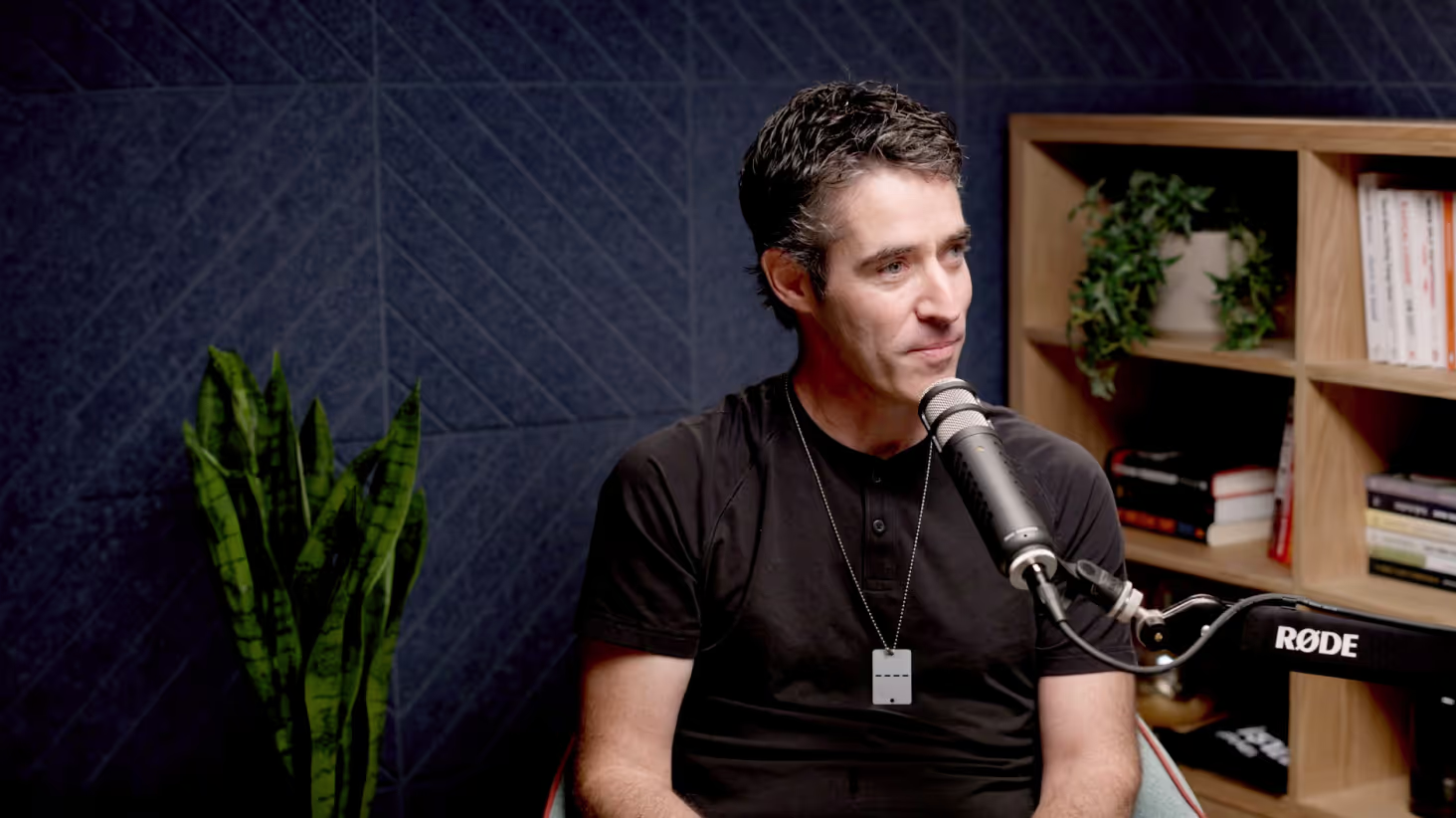


How can values create value? On this podcast, Michael Eisenberg talks with business leaders and venture capitalists to explore the values and purpose behind their businesses, the impact technology can have on humanity, and the humanity behind digitization.
Nir Zohar



How can values create value? On this podcast, Michael Eisenberg talks with business leaders and venture capitalists to explore the values and purpose behind their businesses, the impact technology can have on humanity, and the humanity behind digitization.
Nir Zohar



How can values create value? On this podcast, Michael Eisenberg talks with business leaders and venture capitalists to explore the values and purpose behind their businesses, the impact technology can have on humanity, and the humanity behind digitization.
Nir Zohar
Nir Zohar
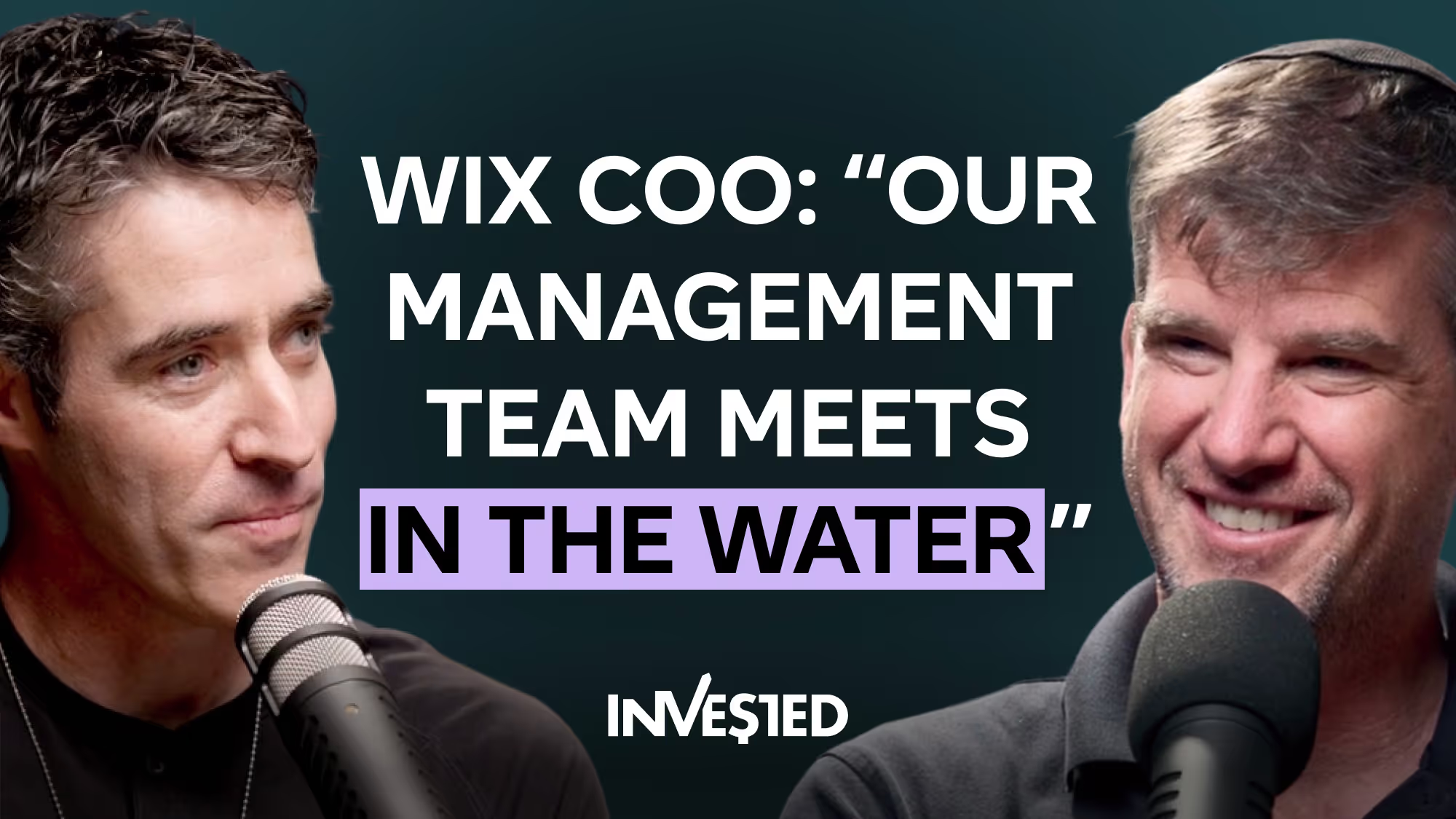
Nir Zohar
Nir Zohar
00:00 – Intro
02:17 – Wix’s $10M Super Bowl Gamble
08:52 – Reinventing Retired NFL Legends
13:28 – Being in the Navy Taught Nir to Run a Startup
16:02 – Business Lessons from the Scouts
18:55 – Why Management Should be Service, Not Status
21:43 – Wix Strategy Offsites in the Water
27:25 – Why Wix Employees Bought Their Own Chairs
30:38 – Betting Wix on HTML5
39:41 – The Breakfast That Sparked Wix's IPO
46:18 – How Wix's Leadership Team Stayed Together for 18 Years
50:24 – Why Going Public Gave Wix More Control, Not Less
53:08 – Hiring a Chief Politeness Officer to Say "No"
55:57 – The $80M Bet on Base44 and Vibe Coding
01:02:31 – Cutting Off Russia While Protecting Small Businesses
01:03:33 – Chartering Planes and Building a Kibbutz in Krakow
01:12:22 – How to Lead a Company Through War
01:18:47 – Why Wix Runs on "Companies and Guilds"
01:25:10 – AI Inside Wix: Productivity, Process, and Team Flow
01:26:14 – Why Nir Is Bullish on Small Business in the AI Era
On this episode of Invested, Michael sits down with Nir Zohar, President and former COO of Wix.com, who helped transform the company from a scrappy Tel Aviv startup into a global platform serving hundreds of millions. A former naval officer and Chief Engineer on a missile boat, Nir reflects on how military discipline and his years leading the Israeli Scouts shaped his philosophy that management is service, not status. He recounts pivotal moments in Wix’s journey—from the risky Super Bowl campaign to the bet-the-company decision to rebuild on HTML5—and the creation of Wix’s “companies and guilds” structure to empower teams at scale. Nir also discusses leading through crises, from evacuating hundreds of Ukrainian employees during the war to navigating Israel’s upheavals, and why he believes resilience, empowerment, and values-driven leadership are the keys to building enduring companies.
Please rate this episode 5 stars wherever you stream your podcasts!
Michael (00:00.014)
You joined Wix in what year?
Nir Zohar:
In early 2007.
Michael:
And what was your job?
Nir Zohar:
I was the guy who was getting coffee.
A very healthy and strong organization is an organization where people feel strong enough, empowered enough to make decisions. If you want to build such an organization, you need to view your job as a manager as someone who's giving service. It's not a status.
So you remember our campaign?
Michael (00:21.25)
I do. It was the first of its kind, is my recollection.
Nir Zohar:
110 million people were watching.
Michael:
Such a good thing you had such good investors. Wow.
Nir Zohar:
Having great investors really helps out.
Michael:
Which is a good segue to the most recent acquisition you made, where I guess it wasn't hard to integrate, because it was one guy. You want to tell us about Base44?
Michael (00:41.954)
Welcome back to another episode of Invested. I am thrilled to be here with my long-time friend, now, Nir Zohar, the President of Wix. Welcome Nir.
Nir Zohar (01:06.126)
Thank you.
Michael:
Nir wasn't always the President of Wix. He had previous jobs there, which we'll get into soon. But Nir, before we get started, I need to ask you–tell us about your very fancy coffee cup.
Nir Zohar:
It's not that fancy, it's just a paper cup.
Michael:
But it looks very pretty.
Nir Zohar:
It's black coffee, Turkish coffee. Are you allowed to say Turkish coffee in Israel now? I think you're not. It's a black coffee I made at home, and put it in my cup, and brought it over.
Michael (01:20.814)
That's not an average paper cup.
Nir:
Well, you know, have you met my wife?
Michael:
I have.
Nir Zohar:
So my wife leads design at Wix.
Michael (01:30.818)
Yeah. We should say that before she was Nir’s wife, she was at Wix. That is true.
Nir Zohar:
You are allowed to marry people you work with. So everything in my life has to look beautiful and highly designed. It goes also to the paper cups.
Michael (01:50.862)
I'm in favor. Your wife is amazing.
Okay, what I want to start with, Nir, is the middle of Wix’s journey, and we will go back to the beginning.
Nir Zohar (02:02.412)
I think the middle is now.
Michael:
Good. I want to go back to what I think was an absolute turning point at Wix. I want to talk about the Super Bowl commercial. Should we start with the Super Bowl commercial?
Nir Zohar
Yeah. Let's do that.
Michael:
Why did Wix decide to do a Super Bowl commercial?
Nir Zohar (02:17.098)
It seemed like a good idea at the time.
Michael:
Did I think it was a good idea? I should say for full disclosure, I was on the board of Wix and an investor in Wix.
Nir Zohar:
Hmm, did you think it was a good idea? I think you did.
Michael:
I did, but I was worried, because it was very expensive. Why did you decide at Wix to do a Super Bowl commercial? It was six years into the company?
Nir Zohar (02:43.574)
It was six years in the company, a year and a bit after the IPO. The campaign itself took place early ‘15. We went public end of ‘13. And we figured out that we were doing tremendous performance marketing. Tremendous, really. I met this woman now, the President of EMEA in Google, who used to work in YouTube. And she said, “I remember back in the day I was in YouTube, we were releasing our new capabilities and you guys were stretching it like there's no tomorrow. You invented all of the things we're doing now with everyone, you guys invented it.” And we were doing tremendous performance marketing.
But we also figured out that we want to seriously create an uplift to our brand recognition. Back then we were also doing TV in North America and it was working and definitely helping out. But we wanted to create a pivotal event, something that really creates something different. And we recognized that the Super Bowl can be a great opportunity for that.
As you said, it was scary. It's a ton of money. Today it's more expensive, but back then it was about five point something million just for the spot. But then you know you're gonna spend another roughly five million on the production, and creating something that's worthwhile to put in the Super Bowl. And for a company of our size back then, well for any company, ten million dollars spending on one ad is a lot of money.
Michael:
And you were just public for about 18 months.
Nir Zohar (04:32.27)
We were just public, for even less than 18 months. Obviously we were scared of some criticism, which was actually not that significant. But it's, I would say more than that, we had 120, 130 million dollars in our bank account. 10 million dollars cut out of that is a lot of money. Now the rest of the marketing we are doing on performance. Where every dollar is going out, I know exactly when I'm getting it back in and I can manage that.
Michael Eisenberg:
And how did you justify to yourself to do the Super Bowl commercial and how do you know that it worked? I think there's a lot of innovation here, which is why I wanted to start with this.
Nir Zohar:
I think the core motivation, the core justification, to speak, was that it's a risk worth taking. You could say $10 million after 100 and something is a lot, but it's also not a make or break thing. We were cashflow positive. It wouldn't put a dent in our cap that we cannot recover from. The risk was not that big on the financial side.
And the justification was, as I said, we wanted to create this very significant uplift in our brand. And you have to remember, for a company that does a ton of performance marketing, an uplift in the brand is something that is measurable–a bit not in the same ways, not immediately as you're advertising, but over time, because you're essentially getting more recognition on organic traffic, which then allows you over time to decrease the amount you're spending on performance marketing and see if it covers. By the way, it doesn't mean that you need to lower the spend. You can then decide if you want to invest more and grow faster, or invest less? We did do one thing or take an approach, I would say, that was a little bit different.
The decision was a last-minute decision. It was, you know, it was taken pretty late in 2014 when–the ad is in February and you have to submit it about a month before–nd we then decided that in order to make something big out of it, and because we're a tech company, we're an internet company, our specialty is how to do things online. We don't want to have a spot on the first week of February on the Super Bowl.
We want to create a campaign that can be relevant for a few weeks before, and a few weeks after. Do you remember our campaign? Remember what we've done?
Michael:
I do. I think this is part of what's interesting, because I think it was the first of its kind, is my recollection.
Nir Zohar:
I can't say for sure, but it was definitely not something that was done. We didn't see a lot of it around us back then. What we've done is first of all, we wanted to reduce production costs, but we wanted recognized faces. And we went out and we got five Hall of Fame NFL players who were retired. Now, NFL players who are retired in most cases are not stars anymore. They don't do commercials.
They don't come with a high price tag. I would say Brett Favre probably came with the highest price tag, and everyone else was significantly lower.
Former quarterback of the Green Bay Packers.
Nir Zohar (08:14.67)
And essentially we told the story of these five Hall of Famers who retired from football, and are now reinventing themselves and building small businesses for themselves, which are aligned with who they used to be.
T.O. was, you know, humble pies, because he was known to be very arrogant, things like that.
Michael:
T.O. is a famous wide receiver.
Nir Zohar:
That's what I got you for, you see? You have to be an American to quote all of those. We've created new businesses for each and every one of them and we started advertising their businesses for real, before the campaign ran up as a Super Bowl campaign. And in some cases people thought it's real business. We got orders for cakes, we got requests for business development. Brett Favre was supposed to open up a charcuterie, and we got this small boutique, mastered company that wanted to partner up with his charcuterie. It was really cool and started creating a lot of noise separately before we started connecting the dots. And that campaign started, I think, early January. So a month before the Super Bowl, we were already out there and starting to cover ground.
And then as we got closer to the campaign, we actually aired the spot before the spot in order to make the full blown noise before we got to the Super Bowl itself. And we managed to create, I would say, almost seven to eight weeks of the Super Bowl campaigns, almost two months of a very strong campaign running around us. We also got lucky. We were assigned a spot, which was the two-minute break in the fourth quarter, which is, if the game is done, then there's nobody watching anymore. If it's a very close game, then this is the peak of your ship. Luckily we got the peak of your ship. It was a very, very close game. I think it was actually won after the two minute break. 110 million people are watching.
Michael Eisenberg:
If my memory serves me correctly, we also waited until late November to close on the spot to kind drive the price down.
Nir Zohar:
Yeah, of course, because we are Israelis. We have to try and haggle. Yeah, I think on our third campaign, we had a 30-second spot ready six months before, that the team, our CMO essentially said, you know, this one we keep. We don't use it for anything else, for the regular activities. We put it in the drawer somewhere. And he waited, and I think he closed the spot four days before the Super Bowl, and then pulled it out.
Michael:
Leave it to Omer. We'll come back to him in a second. Now let's go back to the beginning. The humble beginnings of Wix. You joined Wix in what year?
Nir Zohar (11:09.742)
I joined Wix in early 2007.
Michael:
And what was your job?
Nir Zohar:
Office Manager, I think? I'm not sure if there was a title, but yeah I was the guy who was getting coffee
Michael:
Employee number?
Nir Zohar:
Maybe seven or eight? Or ten? Something along those lines.
Michael (11:29.358)
And you’ve been there 18 years. And when were you promoted to the COO from the coffee maker?
Nir Zohar:
About a year in. Summer of 2008.
Michael:
And the co-founders of Wix were Avishai Abrahami and his brother, Nadav, and Gigi Kaplan. And they brought in young Nir to be the coffee maker. And a year later, why did they promote you to be the COO?
Nir Zohar (11:55.64)
Well, they didn't bring me to be a coffee maker, naturally, let's not exaggerate, but they did bring me to try and create order in a chaos, and try to cover the things that they either didn't like to do or weren't good at.
Michael:
Or that Avishai didn’t want to do, also.
Nir Zohar:
Yes, that they either didn't want to do or weren't good at, or a combination. Because sometimes, you have to do something and you're not good at it, which is the worst task there is.
So they brought me in. I've known both Gigi and Avishai since I was in my early teens, really for many years. And when they brought me in, the company, as you said, was very, very small. If you think about things that are not product and innovation itself, there's everything else, which is, what in a big company you have a function and a full department. You need HR, you need finance, you need legal stuff. You need salaries to go out, you need cleaning in the office. You need someone to be the VP R&D, in the sense of not saying, making sure that things happen as we said they're gonna happen, and are ready on time. In that year, I was all those.
Michael:
Why were you qualified for the job?
Nir Zohar:
I don't know. I don't think I was.
Michael:
Listen, it's a serious question, for young people starting out there. How old were you at the time?
Nir Zohar (13:28.974)
I was 30 up to 31. That's the year.
Michael:
So what made you qualified for that job, at the not yet fast-growing startup?
Nir Zohar:
I think it's a great question. I think some of my past experience, which we can talk about, which was not relevant in the sense that I've done the same thing exactly before, but I did things that were close enough on one end.
Michael:
Such as?
Nir Zohar (14:07.798)
Well, definitely military service. I was a Chief Engineer in a missile boat, the Naval Academy. Served for almost six years. Working in a tight environment, small teams, a constant lack of resources, having a ton of responsibility at a very young age with a relatively short training process compared to others. You know, in order to be a Chief Engineer in the US Navy, you need to spend 15 years of training.
You bundle all of those together, you can very easily apply them to how to start a company and run a company. You'll probably use the exact same language and the same words. It forces you to be agile. It forces you to know how to work very well with people, to arrange and fix things, whether it's fixing relationships and friction between people or fixing whatever is physically broken. It's the need to learn very, very fast new things, and adapt quickly to things, and focus on what really needs to be done, not about emotions or ego, et cetera. And I think all of that really served me extremely well going into that.
Finally, the next job I had after my army services, I went and I worked is, I worked for the Jewish Agency, and then I came back to Israel, and I worked for the Israeli Scouts. And there's something fascinating about that as well, because unlike the army where at the end of the day there's authority–if you tell someone you're an officer, you tell someone to do something, even in the Israeli army, they do it. Although there's much less formality in the process. When you try to work with teenagers and tell them what to do–well, you have teenagers, you try to tell them what to do.
Michael:
I'm getting older now. But you have a bunch of teenagers. I've been there.
Nir Zohar (16:02.766)
It's a coin toss, right?
Michael:
By the way, to clarify for everyone, the Israeli Scout Program is a youth organization among many youth organizations, youth movements in Israel that devolves a lot of responsibilities and a lot of pioneering to Israeli teenagers.
Nir Zohar (16:21.288)
You can say that the country was founded on the back of these youth movements, and they retained a lot of that legacy of how they try to train you to become a productive and effective adult.
Michael Eisenberg:
And leaders.
Nir Zohar:
And leadership, for sure. By the way, if you look at the military service in Israel, if you look at a lot of companies, many of the leaders and the officers are ones that have also had deep experience in youth movements. That being said, at the end of the day, if you're working with a teenager in a youth movement and you tell them what to do, it's not the same kind of authority. You have to be much more sophisticated and smart in convincing them that what you want them to do is actually what they want to do, which again, I think is a great training for life and for working with people. Helps you put yourself in the back seat sometimes and try to navigate people without having your hands on the steering wheel. And I think all of that really helped me in my first–
Michael:
I want to pause for a moment, because I think one of the things we focus on on this podcast are the values that create economic value. Your story is atypical in some way. Six years of military service, and then many people run in and do a startup after the military service here, but you took a bunch of years out and did community service, or the Jewish agency, or in the Scouts program. Why'd you do that? And did you think at the time that you'd end up in high tech?
Nir Zohar:
I did not think I was going to end up in high tech, but to be honest, I wasn't really thinking career at all. Maybe not really serving the economic value personally or alternatively at that point of time. I was extremely active in youth movements before my military service. Mentally, I saw my military service a little bit as akin to the continuation of my activity in the youth movement. Getting back to it. And to me, it was on the same timeline, so to speak. And I liked it, and I thought I was pretty good at it. I felt comfortable going to a place where I think I can contribute and do things that I deem as important.
Michael:
Was it helpful in your management career?
Nir Zohar:
Wow, tremendously, tremendously. To my management career? Because of all of the skills we discussed, I think–
Michael (18:55.63)
Be specific. Because there’s a lot of teenagers in Wix, but…
Nir Zohar:
Yeah, I would say some parts of Wix sometimes, it's working with younger kids than teenagers.
I think it's helped me tremendously because of the things we discussed before. I think, you know, a healthy approach to management in my mind is understanding that, more than anything else, a very healthy and strong organization is an organization where people feel strong enough and empowered enough to make decisions. You have a good enough process to overview and some oversight on decisions. Make sure that the ones that are critical and you have to oversee go through you, and the other ones don't, and how to make sure that you every now and then how to feedback people and help them grow. And if you manage to balance this in the way, you'll have a much stronger organization.
This is not about having people who are happier. It's not about–this is not about community. This is about real good management of an organization. Because the bigger the organization becomes, the more independent you want people to be, so things will keep on running fast and not be dependent on you. Otherwise, it's going to slow to a halt. I think that if you want to build such an organization, you need to view your job as a manager as someone who's giving service, not as someone who enjoys benefits. It's not a status. Obviously, it is a status. But the key part of being a great manager is giving excellent service to the people you manage, so they can be more independent. And I think this is definitely an approach that resonates extremely well with what I've done in youth movements. So that definitely, I think, was a big help in making me a better manager.
Michael:
I want to come back to the notion of empowerment, particularly as it relates to the guild structure at Wix in a second. I also want to come back to why happiness is overrated at work, and it shouldn't be kumbaya. We'll come back to that in a second. Speaking of that in the youth movement, when I got involved in Wix as an investor, one of the things that struck me was the offsite culture. I think I once called you and you told me you were in the water in Greece. And I said, “On vacation?” And you said, “No, no, no, working.” Explain this.
Nir Zohar:
To this day, I think you have a hard time believing that we were working. I know that.
Michael:
Except it happened six months later again and six months after that.
Nir Zohar (21:43.054)
But we stopped going to Greece. It was too cold. We started going to Thailand. We had this concept, we still do, that in order to get high quality time for the management team, we want to unplug them from their lives. And, you know, it doesn't matter if they're young, if you have kids, you don't have kids. It’s to pull you away from your surroundings. Try to isolate you to the best we can. Now, naturally, we don't take away your phones. You can talk to your family, blah, blah. It's not real isolation, but definitely a very significant change of scenery, a significant change of scenery which is far away. It doesn't break every evening, because you go back home and then come back the next morning. It has to be abroad. And we have this concept that we want to do very long days of, you know, taking a crack–and it's really tough–at subjects that we want to solve. Structure of the company, what's working, what's not. Who's to blame, not in assigning blame, but in finding root causes we can change things.
What are the next big things we have to do strategically? How do you go about them? What are the key threats we have and how do we mitigate them? These are tough things to discuss. They almost always take a long time, always bring out lots of emotions. And in order to do it effectively, we want to be in an environment that is extremely fun, comfortable, and lets people, you know, digest and move through their emotions so they can get cleaned up, cleared up, and we can continue forward with constructive things. And effectively, the way we do it–we go to a warm, nice place.
And we do sessions all day long. We start about nine, 10 in the morning, and we end up usually around six, seven in the evening. If you think about any manager who's had time with his management team for five days like that, it is an extremely high volume of time of management to spend time together. I run a strict show there and I don't give them a lot of breaks. They always complain. And we do it. in the water. So we do it in the pool or in the ocean. We actually sit in the water, and we talk. There's a few very significant values of doing meetings in water. One is, as I said, it's very comfortable, it's easy, you don't get uncomfortable sitting in some dark neon-lighted conference room all day long. The sun, you feel the wind, and you're sitting in water, and you can move around and you feel comfortable in size. Another great benefit is even with all of the improvements done in the field, nobody feels comfortable bringing their smartphone into the water. You get people's attention.
Michael:
Those are the only two benefits?
Nir Zohar:
They're big. Working tremendously well. I'll tell you something else, Michael. There were a few years that this cadence of going on offsites was disrupted. You know, these small events COVID, wars in Israel. And whenever we missed one, I could actually, I could really feel the misalignment that's happening. We always try to do one in Eilat or do one in some pool in Tel Aviv, or something, that you don't get the same quality.
Michael (25:41.614)
Is it Thailand now every year when there's not COVID and not war?
Nir:
Thailand or Seychelles, because we're trying to– in Israel, still going to the Caribbean is too long, too far. Seychelles is not the closest destination, but it's the closest tropical climate that we can get to.
Michael:
I'm sure in the early days, investors looked at that and said, “That's quite an expense for a young company.” Or did nobody say that?
Nir:
No, I don't know why. Our first two angel investors, I think the first one we've done was already after we got the VC money. So the two more significant people in the board or the representatives from Mangrove and from Bessemer. Adam, I think you've had on this show before from Bessemer, and Mark Tluszcz from Mangrove.
And they were very smart and supportive about it. And when you joined–no, I want to say, when you joined, first of all, it was already a habit. You didn't have much to say about it. But out of all the things that you criticized and pushed me to do, you never had any pushback about it.
Michael (27:00.439)
I wanted to be invited.
Nir Zohar:
That's fair. That's fair. You all want it, but there's some rules to it.
Michael (27:06.798)
The thing about the Wix culture early on was the coffee. And like, you know, there were all these things going on in Silicon Valley, free food and this, that, and the other, but in Wix there was coffee. There's always good coffee at Wix, and beans, and big machines and it wasn't Nespresso or pods or crappy Starbucks coffee. What's the deal?
Nir Zohar (27:29.89)
First all, we like coffee, and Israelis in general like coffee. We were a tiny startup. We didn't have a lot of money. Now I spoke about going to Thailand, so you're going to say, “Hey, hey, hey.” By the way, I once tried to do the comparison of going to a high quality place in Israel and feeding everyone, and going to Thailand. Same price. You waste a little bit more time on this travel, but you get the quality from being there together all day long.
We didn’t have the money to feed people for free. Many of those perks came along later in the years. But we were very small. We said we always want to focus on the things that are important, and make a difference in people's lives. For example, coffee. We said, people love coffee. We're not going to tell them what to eat, but we're going to make sure that they have really excellent coffee around, because we know they drink it all day long and were interested in it.
That was one of them. But we had another great rule back then. We were in Hashmonaim, in Tel Aviv, and there was a…
Michael:
It's in the center of Tel Aviv, in a very rinky-dink building. If you go back on my Facebook, you can go find a picture of Nir.
Nir Zohar:
Exactly. Well, today the whole area has become–the TLV mall is in front of it, and it looks much more much fancy. But back then, it was a hellhole, and the TLV mall was essentially a parking lot. There were a few stores downstairs that sold computer equipment and chairs and such. And whenever a new employee came in, we said, “You know, you don't have a computer in the station, and you don't have a chair. Here's a credit card, go downstairs and buy whatever you like.” And the idea was that, you know, the chair, the screen, the mouse, the keyboard, these are the tools of a tech employee. That's what he's going to be spending most of his day with or in, in the case of the chair. Let's give them choice. The difference in price between the most expensive of them and the cheapest is not that big, especially when you're 20 employees, 30 employees. Let's give them choice. First of all, it's a cool and fun experience. And second of all, it makes everyone feel that they're getting the quality that they were hoping for and not something that we determine. We had that rule, by the way, running up to almost a thousand employees, and then it stopped being effective.
Michael:
Yeah. And then the business downstairs went out of business because you moved out of that building.
Nir Zohar:
Yeah, it is also true.
Michael:
So early on in the days of Wix, the company was based on a technology called Flash that almost everybody has forgotten. Flash technology was made by Macromedia, and by the way, Adam Fisher referenced it when we sat here. In fact, it looked like it was deteriorating at the time, that it was gonna be phased out, is a better way to say it. But Wix was built on Flash. And at the time, HTML5 was in its early, early days. And this was a real crisis moment. I'd like you to take us through what happened, what you did, how you prepared, and how you got past that moment and the company really started to grow.
Nir Zohar:
So Flash is a really weird story in the history of technology in general. Remember Macromedia were acquired by Adobe because of Flash. Flash was the most installed software on the planet. It was installed on 96% of the computers. When we started Wix, Flash websites were the thing because you couldn't do a lot of crazy visual stuff with HTML.
Michael:
Yeah, this enabled you to do animations, websites…
Nir Zohar:
Exactly. Also it had the value of working almost exactly the same on any computer or any browser, because it was running on one piece of software instead of lots of different ones. Everyone wanted to have a Flash website. And in fact, lots of people were specializing in how to build sophisticated stuff on Flash, because it was almost coding. It's halfway coding.
The first and most exciting version that we got out of Wix back then was essentially letting anyone build a Flash website, without having any knowledge and understanding of coding. People loved it, and they did tremendous stuff with it. And also lots of really weird shit with it, because they could. And then the fight started between Adobe and Steve Jobs. He felt he was supporting them with their releases. They didn't incorporate some of their new capabilities for Mac back in the day for iOS with Photoshop and Illustrator. And he went to war on Flash, backing up HTML5 as the new standard. And we needed to understand which bet are we taking. Are we taking a bet on Adobe and this software that's on 96% of the computers on the globe? Or on the crusade that Steve Jobs decided to declare on the technology?
Michael:
I want to put a fine point on this, because people don't remember the history and I think it's super important. Since everything in life is personal, this became very personal between Adobe and Steve Jobs. And he was determined to destroy Flash, and also to free his Apple devices. Because they wouldn't support him, he was now going to free all the Apple devices.
Nir Zohar (33:40.876)
From Adobe in general, and definitely Flash as well as Adobe over time. Which means that in 2008 when the iPhone came out, at the beginning it didn't support Flash, because it was early and they didn't have time to do it. But then on the second version when it was about time to put in Flash and the iPad came out, he said, “No, we're not going to be supporting Flash on our devices.”
Now, it's not betting on Steve Jobs, he's understanding that there's a whole movement here with his two extremely exciting new products, the iPhone and iPad with no Flash. And to be honest, it makes no sense for Adobe to lose. It made sense, because I remember there were ads of tablets that were showing that they can present Flash as an advantage versus the iPad in order to win the advertising and the sales.
But we decided that there were two things that we were worried about. One is that Adobe was not very forthcoming in talking to us or to anyone else. And we were probably, even back then, the biggest distributor of Flash websites on the planet. And still they wouldn't talk to us. And it got us really worried that at the end of the day, our future is dependent on one company. Software controlled by one company.
Whereas the news or the vision that Steve Jobs was bringing was that HTML5 is going to be great, and he's going to put a lot of pressure to make it such, because it's going to serve these two new devices. they have to get to a high level of visual capabilities and clearly it's Apple and Steve Jobs. High-quality visuals are important for them. There's a good chance we're going to get to them.
Michael:
Though Apple in 2008 was not the Apple of today. The iPhone had come out, Jobs a couple years earlier had taken a $150 million rescue loan from Bill Gates and Microsoft. This was the first, after the iPod, this was really the first big release that was a connected device even. And this wasn't obvious.
Nir Zohar (35:53.502)
It wasn’t obvious. But the interesting part about that vision was that HTML5 was going to be a standard. It's not going to be a software owned by someone. And if it's a standard, it means that there are contributors from everyone, and we're not dependent on one software which belongs to one company. And we decided that we have to hedge our future by developing our HTML5 editor.
Early on, we thought that maybe we're going to have HTML5 and Flash and we'll see what works better and then we make a choice. Clearly, first of all, once we decided we want to go down this path, we had a lot of debate internally, whether to do it, how to do it, lots of arguments with the board, whether this is a good decision or not, because the risk was that we had a business that was growing.
And we were being successful at early stages, and now we're going to have to rewrite the whole technology. A small company–we have to stop everything and only do that for more than a year, which is a big risk, because business will slow down because of it. And we might lose ground or lose market share to competitors who are not going to be doing it while we're doing it. And it's a lot of risk.
Michael:
Who were the other competitors then? Weebly?
Nir Zohar:
Weebly, Squarespace, Yola, back before that they were called Syntheside. I think back then there was also Moonfruit. There were many back then.
Michael:
And this is a bet the company move?
Nir Zohar (37:07.404)
I think it was a relatively easier bet, because if we hadn't done it and stayed with Flash, and HTML5 would have gotten to where it is now, and Flash died as it did, then you would have lost the company. But in a future where we would have done it and Flash would have remained strong and even won over HTML5, then I think that it would have recovered, because we would still have the Flash website builder with some year behind in infrastructure and development. But we had to take that bet. It was still at a time extremely risky. You have to remember one thing though, is that we were running the chance that if business slows down significantly, we may run out of money. Right.
Michael:
That's why it was a bet the company move.
Nir Zohar:
Maybe our shareholders and VCs will decide to support us, or maybe they're going to say, “Hey guys, you made a bad bet and this is life. Go and start something new.”
Michael:
Good thing you had such great investors.
Nir Zohar (38:28.436)
It’s true by the way. I think having great investors really helps out. Luckily, I think we made the bet with, I think, three months or four months from the launch, already all of our new websites were being done on HTML and no new users were added to the Flash. The existing users were used to Flash, kept on building Flash websites for a long time. And in fact, you know, when did we fully discontinue the Flash websites? I think about two years ago, the last browsers announced that they're gonna discontinue support of Flash. We still had about 10,000 websites on Flash. People were unwilling to give you their Flash websites and we said, “Guys, we're sorry, but they're not gonna work on anything anymore.”
Michael:
It's a story I think that people don't understand, how long legacy technology lasts in the system.
Nir Zohar:
Essentially forever. Essentially forever.
Michael:
Which is quite remarkable. You fast forward now a couple of years, the business is doing, if my memory serves me correctly, it's about $60 million of run rate revenue and you decide to go public.
Nir Zohar:
Somebody was pushing me.
Michael:
One second. This is what today certainly would be considered an early IPO, but even in 2013, this was an early IPO. Why did you do it?
Nir Zohar (39:41.644)
I think it's always, it's a combination of a few things. First of all, we had this lunatic investor who, remember it was, I think it was very close to where we're sitting now. He took me to breakfast. You took me to breakfast on Chol Hamoed Pesach on Passover.
I remember, because it was a Passover kosher breakfast, and it was, Zillow just went public, backed by Benchmark and they also they went public very early, even earlier than Wix. I think they were a 300, 400 million dollar IPO in value on the back of about 50 million in revenue or something that. Very early IPO.
I think you were inspired by Zillow, and gave it all the thought, and you sat me down and said, “Hey, Nir, I think we should take Wix public.” Which completely threw me off because I've never even thought about the notion of going public. And I remember as we were done with breakfast, I called Avishayi up. And Avishai was on his way to the airport to go to San Francisco. And I said, “You know, Avishai, Michael sat me down for breakfast and told me that he thinks we should go public. What do you think about it?”
And he said, “I don't think anything about it. I've never thought about it. I have no thoughts in my head about going public. Never did I have thoughts in my head about going public. I don't even know how to start thinking about it.” To which I said, “You know, this is also what I had in mind.”
But we were introduced a few years back, you introduced me to Noah Weintraub from JP Morgan, who ended up being our banker on the IPO. I said to Avishai, “Listen, I met this guy who is smart, is a massive supporter of Israel, lives in San Francisco. I'll do a quick intro on the email. And while you're there, try and grab coffee with him and let's start learning.” I think it was April, 2012. And we ended up going public in November 2013.
This is pretty much the length of our thought and learning process. Over the summer of 2012, we wanted to raise money again, and we were really keen at having a high valuation, because we wanted to raise a lot of money, and we don't want to take too much dilution, and we were at the stage where we can pick and choose.
It was funny, we went out on a road show for two weeks. And the first week was amazing. We had fantastic meetings. Everyone was extremely enthusiastic. We were sure we were going to get lots of very high-quality, half a billion dollar valuation term sheets. Then on, I think it was a Thursday or a Friday of that week, the first week, something happened, which was Facebook went public.
Now, today they are running a tremendous business. But back then, the IPO was bad. They went public and tanked.
Michael:
Stock dropped 50%.
Nir Zohar:
Now everyone in Silicon Valley was holding shares of Facebook. All of the happy, happy people we met on the first week were very unhappy people the following week. And we went back home understanding that this is a bad timing to try and raise money. And we said, “What the heck? Let's try and figure out this whole IPO path thing.” We had a phone call with the board, and said, “Guys, we want to start pursuing it.” Everyone said, “Okay, can we go public next month?” We said, “Well, no, because no one around this table took a company public, and especially not us. We need to learn. We called Noah Weintraub again, who was assisting us in trying to raise money. And to be honest, we surprised him.
He was sure that we are trying to figure out how to do another round in September after the dust settled. Instead we said, “You know what, Noah, let's go down the IPO path. But since we're clueless, we need you to help us out. We want to talk to at least 10 CEOs who have taken their company public in the past couple of years or so, and should be closer to our size.” Talking to a massive company will be obviously completely different. And through the fall and early winter, we went through this whole education path of talking to the bankers to better understand how things work, to talking with some of the investors who had experience with public companies, talking to lots of CEOs and CFOs who took their company public. Asked them about what they're happy about, what they're disappointed about, what they would have done differently pre-IPO in order to be better ready, post-IPO. What were their best experiences from the process itself? What were the worst ones? And started accumulating a whole lot of ideas, either good ideas that you wanted to replicate or things we wanted to make sure that we avoid.
You know, I think, one of the comments I got from the CFO of LinkedIn, he got us to make a real big effort on redistributing equity to all of the stars in the company pre-IPO, which was a very, very painful experience. We diluted our existing shareholders by 11% a moment before the IPO.
Michael (45:48.15)
By the way, you should point out, on long vesting.
Nir Zohar:
Long-vesting. Well, the management long-vesting, the middle management regular.
Michael:
Regular being four years long vesting, if I remember correctly, long being six.
Nir Zohar:
Six. Yeah.
Michael:
I think this is a key point, by the way, because one thing to point out is that the core team of Wix 18 years later is still in place. At the company well over a decade, some close to two decades at the company and the–
Nir Zohar (46:18.286)
Now you're making me feel old.
Michael:
You know, you were 30, 31 when you started at the company. It was a long time ago. And the team at Wix, I mean, more than any other company I know, is still in place very broadly, including the CFO, including who joined before the IPO.
Nir Zohar (46:39.662)
Yeah, the CFO, including almost, I think there's only one senior manager that joined after. Everyone else was pre-IPO.
Michael:
Pre-IPO. It's pretty stunning.
Nir Zohar (47:10.744)
Anyway, we learned a ton. We spent the end of the year in 2012 learning, early 13 building the array of bankers that you want to support us in going public. Then we launched in March. March 13 was the launch of IPO that brought us to the November timeline. It was, I think back then, we didn't fully understand what we were getting into, to be honest. Because you have to remember, it's Israel. Today, it's much more common to meet an executive in Israel or not even somebody who grew up in a public tech company. This was something extremely common if you were in Silicon Valley. in Israel and in Tel Aviv of 2013, there were very few companies. We met Eyal Waldman,
Michael:
Founder of Mellanox, was also on the podcast.
Nir Zohar:
And we met Gil Schwed–
Michael:
Founder of Checkpoint.
Nir Zohar (48:05.102)
But these guys, there were only two of them, and Checkpoint went public early 90s. So very, very different stories. It was very hard to find people with the experience around you to advise you. Again, today, much easier. And this is something we're very proud of. We weren't sure what we were getting into. We, first of all, we wanted to raise money, which is one thing and a good reason to go public.
The other thing we figured out through the IPO was, or through the process, even before we went public, which became, I think, a big part of the motivation was–throughout the years prior to going public, we got very generous offers to sell the company. At $250 million, at $450 million, at a billion dollars before the IPO. And we always said no. And we said no because we liked what we were doing.
We saw a little bit of secondary early on, which was another great generosity by our shareholders to allow it and support that. We weren't tremendously stressed for immediate cash in our pockets for our personal lives. We really believed we could build something big, and we wanted to try to take a real shot at it. We figured out something.
You know, somebody said that to me prior to the IPO. Itzik Ben Bassat. He was back then on our board of directors and was fundamental in World of Warcraft. And he said, “What are you mostly worried about?” I said, “Well, I'm afraid of losing control as a public company.” He said, “No, no, no, no, you don't understand. This is the other way around.”
I said, “What do you mean?” He said, “Well, today you have three or four people who hold all of the shares or most of the shares in the company. Luckily they're friendly, and they support you, and they trust you. But in a different world, they can take over almost in the heart of it. And companies go through that. It's not uncommon. It happens. When you go public, the last thing that the public investors want to do is to manage the company. They want you to do it and they want to trust you. They will award you more if they trust you more, and then you'll be in a tight spot if they trust you less. But you will have much more control and confidence in the control of the company than you have as a private company.”
And I think, you know, the IPO ended up being really a pivotal moment in us growing up, becoming more serious as managers. Extremely well committed, because once you do, when you go public, you take equity for six years, because you want to be there six years later. It's a long-term commitment.
Michael:
So I assume no regrets about going public, or are there? Do you advise other young entrepreneurs to go public early today, or no?
Nir Zohar (51:13.422)
I think it really depends on the company. I’m not sure about–I think for us it was the thing to do. I think today the environment is a little bit different. It's easier to get money. You get more money at better terms than what it used to be back in the day. Remember when you joined the Wix board, Benchmark essentially came in and cleaned up all of the existing preferences and nasty veto rights and stringent rules that were in place in the company's charter. I think it's a different environment today.
I think there's a lot of value at becoming more mature to some extent. And also think that it's easier today for Israeli entrepreneurs to mature as private companies than it was when we were going public.
That being said, I still think it's a great outcome. Because if you want to build something for the long term, if you want a vision, if you want to build a legacy, you want to build a company that's going to outlast you. Truly, my dream is at some point to retire, because 30 years have passed since I joined Wix, and to have great managers to run the company, and essentially, on my deathbed, to know that the company is still a big Israeli company that is doing great for the world. There are companies like that. They exist. They don't exist in Israel, because Israel is too young. But why not? And I think if you want to go down a path that, not exactly that, but that, then you definitely need to take the company public at some point.
Michael:
Of all the companies that made acquisition offers, are any of them larger than Wix now? I don't think so.
Nir Zohar (53:08.398)
One.
Michael:
One. Which is pretty stunning. Before the IPO, you hired a head of business development and corporate development, his name was Dror, but his job was to do no deals. I remember I bought him deals, he said, “Oh, thank you very much.” And I said, “Did you follow up?” And he said, “I said no.” What, what, what, what?
Nir Zohar:
His job was to be polite. No, I'm serious. Listen, I think each company is different. We were a company that was established on something that was relatively rare back then in Israel. We built a direct to consumer product, which was extremely successful, relatively, almost immediately because there was a massive need for it.
And we did a decent job in our first versions to match that need with something that brought people value. And we had much growth and runway that doing deals and working back then, they were different, but back then working, trying to incorporate and build integrations and work with big companies and with big partners–which slows us down tremendously. It's a small development team. And if you dedicate half of it in order to integrate your product into Google, into Meta, or into anything, you're probably not going to get the same–well, not probably–you're definitely not going to get the same amount of value of developing the consumer-facing product and getting more traction. And you're going to significantly slow down development, and you're going to create a dependency.
So back then we were really trying to avoid partnerships. However, we were getting a lot of people who were approaching us, and we didn't want to be schmucks and ignore them. We brought someone who can maintain relationships over a long period of time. By the way, some of the relationships turned into partnerships four or five years later when we had the ability to raise our heads and take a breather and tried to create those partnerships. But back then, we needed someone to be polite and maintain the relationship without having to do anything.
Michael:
Could have been a better title. He could have been the CPO, the chief politeness officer, just, you know, call him, don't be a schmuck.
Nir Zohar:
You know, maybe that's what we called him at the office.
Michael:
Which is a good segue to the most recent acquisition you made, which is three weeks ago, where I guess it wasn't hard to integrate cause it was one guy and some vibe coding. You want to tell us about Bass44?
Nir Zohar (55:47.788)
Mm-hmm.
Michael:
How much did you pay for Base44, first of all?
Nir Zohar (55:57.858)
$80 million.
Michael:
For a guy.
Nir Zohar:
For a guy. For technology. For a know-how. For a brand. For an actual product that is getting a ton of traction. By the way, it keeps on improving. The past few weeks since we announced the acquisition has already shown a massive improvement in numbers.
Again, time will tell. Talking about it, I can be very proud about it a month after the acquisition and then be very embarrassed about it in a year from now, in theory. I think I'm going to be very happy and even prouder in a year from now. me, I'm always an optimist.
Michael:
Why’d you buy it? Want to tell everyone what Bass44 does?
Nir Zohar (56:42.926)
Of course. Base44 is a company in an emerging space of vibe coding. Vibe coding is the idea and the concept that you use natural language to prompt. You write, ‘I want to build a website. I want to build a component. I want to build an application that does something.’ My wife wanted us to build an application that will manage all of the kids' summer activities in one place, on one calendar, that can accept either text in order to put in a new activity, or it can also scan an image that has the data on it and put it into the calendar. You go, you prompt it, you get it. You understand that you missed something or that you want to be able to edit directly from the calendar itself. So you then prompt it again and say, ‘Add this, add that.’ You can do it in Hebrew. You can do it in English. It's a really, really cool concept.
And I think for us, vibe coding is extremely interesting for two reasons. One, I would say there are three potential outcomes. It's going to go away. That's always the option, right? Something goes up fast and goes down. We've seen this, you've seen this, I've seen it many times. Obviously, we don't think that's the case, but it's an option. The other two options is that, let's call it the defensive option, which I less believe in, but it's something to be considered, which is in a year from now, two years from now, three years from now, most of the websites on the globe are gonna be created by vibe coding, in which case we have to be big players in it.
Because it protects us, our current business that might be cannibalized by new technology. It goes back to the HTML-Flash decision back in the day. And then there's a third option, which I believe more in, which is a little bit what Wix did back in the day when we lowered the bar of who can build websites.
Because when we started Wix, you remember that–in order to build a good-looking website, you had to be a professional. You had to know how to code either Flash or CSS at a high enough quality in order to create something that looks well. And you had to go back to the code every now and then whenever you wanted to make a change. And the whole idea about Wix was, we're going to remove all of that hassle. We're going to clean it up. We're going to take care of the technology. We'll give you the user interface to do it on your own.
Vibe coding does that, or building applications, for building software.
Michael:
Can’t I do that with Anthropic?
Nir Zohar:
Try. It's not the same. Anthropic does a tremendous job when you're a coder who knows how to code and wants the coding to be done for you. By the way, vibe coding is running on top of these models. It’s simplification. You can say, can you have done it? Can you give people Flash? No, I gave them Wix. I took the more complicated technology and I simplified it for people who are like you and me who don't know how to code.
Michael:
Have you put the Wix marketing machine behind Base44? The secret weapon called Omer Shai?
Nir Zohar (01:00:16.142)
Yes. He's deep in it at Wix. And now he's also CMO at Bass44.
Michael:
How much money have you put behind marketing at Base44 since they've arrived? Because he put none behind it, Shlomo. Maor Shlomo.
Nir Zohar:
I cannot divulge a number, but I would say it's a good number, and it's on the rise and it's growing.
Michael:
You feel you've repaid the purchase price already?
Nir Zohar:
I think I paid it in value for sure. In value for sure. We'll get it. I haven't seen new cash yet, but I'm going to get to it.
Michael (01:00:50.318)
So this is one guy, one-guy company, and Wix has always been about what I'd call the little guy. I remember a very difficult decision on the eve of the IPO to turn off Syria because the US government required that you couldn't go public if you served customers in Syria, even if they were the little guy in Syria.
Nir Zohar:
We were really trying to find any loophole and to try to avoid that, but eventually it was very strict. We had to do it.
Michael:
And the Russia-Ukraine war breaks out. Wix has a lot of employees in the Ukraine. A lot. I want to talk about two things. One is the decision to cut off Russia from Wix. And number two, what you did for the Ukrainian employees of Wix.
Nir Zohar:
So I think the first one is, cutting off Russia was a hard decision. And it was a hard decision again, because big powers are fighting, and in theory you can say Russians are the bad guys–by the way I'm sure they are the bad guys–and anything that supports them should be removed. It's an easy call: remove it.
But as you said, at the end of the day, the people are using Wix.
Michael:
Vladimir Putin is not using Wix.
Nir Zohar:
No, he's not. It's the simple people in the small towns, or in Moscow, whatever, who are using it for their small businesses. They're not part of the power play, and they're going to suffer. That being said, I think it's an extreme case where, unlike the situation with Syria where we were trying to fight it because it was a government regulation–here, there were lots of little guys on the other side who were also suffering and they were also not part of the struggle, and were being hit over and over again, which were the Ukrainians. And we thought that in the grand balance of things, okay, the thing to do is to cut off our relationship, or the business relationship we have in Russia. It wasn't an easy decision. We knew that we were going to… There's a downside to any, to whatever we're going to decide, and we decided to go with that, in that direction.
Michael:
How many customers were affected?
Nir
I think paying customers are a few tens of thousands, probably. And free users, hundreds of thousands. It’s a real number, yeah.
Michael:
Talk about your Ukrainian employees. How many employees did you have in the Ukraine on the eve of the war?
Nir Zohar (01:03:33.198)
At the time of the war, we had 900 plus Ukrainians. Some of them were already, we had two groups that were already outside of Ukraine. We have it also in Israel. We have this relatively small group of people which are mapped as under the BCP guidelines of the company, the Business Continuity Protocol, meaning that we know that their function is almost unique,and if that person is unavailable, then it's going to be hard to try and recover. So there were about 20 or 30 of those, who, a few weeks before the war, we said, “Guys, tension is mounting. We would love for you to take your families, travel, we'll sponsor it, go to our offices in Krakow.”
Michael:
In Poland.
Nir Zohar:
We had a small company, US company that had development in Krakow. That's what we had the office in Krakow. It's not very far from home, and hopefully things are going to come down and you're going to go back, but we'll sleep easier if you're there rather than in Kiev now. But then really a week and a half before the war started, and tensions were really going high. We said, “This looks bad. Let's try and create an insurance policy here and help people out.” We said to all of our Ukrainian employees, “We are chartering planes. You can get on the plane with your immediate family–spouses, if somebody has an older parent that they want to bring over to the can, definitely kids. We rented a space in a whole resort in Turkey. It's February, it stands empty. We took the whole resort in Turkey, and we're going to fly you to Turkey. It's a short flight, and you're going to spend the next few weeks there. Let's see what happens.” We had about 180 employees, I think, that took us up on it. Ended up flying about 300 people, because they came with families. We chartered a couple of planes, and we took them out. And they were in Turkey when the war started. We had these people who were outside of the country.
Then essentially, once the war started, everyone were fleeing, from Eastern parts and central parts of Ukraine towards the Western parts, and we knew that they were going to try and cross the border. Ukraine shut the border for the men 18 and 60, up in the age range of 18 to 60. but we had lots of female employees,
And essentially we started by creating places where they can stay in the Western parts of Ukraine to be safer. And for anyone who managed to cross the border, we really had a war room that's convened on a regular basis. Tried to find out where everyone is, make sure that they can travel out, rented out transports from Dnipro and Kiev to move them westward.
But for those who passed the border, or crossed the border to Poland, we had drivers from Lithuania, employees from Lithuania who got into cars and drove down–it's a, I think, 1200 kilometers drive to the border, to be there and move people from across the border and transport them to Krakow. They were waiting for them with food, and blankets, and sometimes baby food and clothes, because people were traveling very, it was really a fugitive experience.
People were in their cars, fleeing from one side of the country to the other in winter. And then when they got to Krakow, we started building, I didn't like it back then when I called it, but I called it–we were trying to build a kibbutz in Krakow, in the sense that-
Michael:
The Wix kibbutz.
Nir Zohar:
In the sense that we were trying to get people together in a place where we can also create layers of community to help each other. People were coming with kids. People were super tired with spouses. We wanted to make sure that there's activities for the kids. We helped them with slowly getting into the education systems in Poland. At the beginning, we gave them a stipend to rent out houses and places. At the beginning it was, early on it was Airbnbs and hotels. Then we switched to apartments, helped them with all of the local stuff, because you are now coming and you need to establish your presence in a country where you don't speak the language, and you need to sign a Polish contract. You can’t read the contract, right? We tried to take everything into account and create the environment for them to ease up a horrible, horrible experience to the best of our ability. Either for the Ukrainians who are stuck within Ukraine and set up places for them in western parts of Ukraine closer to Lviv, or alternative is ones who got out to set them up in Krakow, at some point took the guys from Turkey and moved then also to Krakow.
Michael:
How many people do you still have that were physically in Ukraine?
Nir Zohar:
Physically in Ukraine, I think we're roughly 500 plus. And now in Poland. We're hiring, you have to remember. I think about Ukraine–some of my Ukrainian employees are bigger Zionists than some of the Israelis I know. And I try to have the same approach about Ukraine. I'm a Ukrainian nationalist, essentially.
Michael:
Are you still hiring in Ukraine?
Nir Zohar (01:09:27.254)
I really believe in Ukraine. It's an amazing place. I think when the war ends, they have a chance, which I hope they're going to take, to rebuild their country in a way that's going to be much better than it ever was. The people there have proven massive resilience, and a huge loyalty also to the company and to its values. The amount of support they gave us when the war started in Israel is unbelievable.
So yes, we were hiring, we built a new design hub in Ukraine with 50 designers. We announced it in Kiev in January. We're now, we have 30 plus employees out of the 50 that we want to hire, and we're going to get to 50 by in a few months. I think Ukraine is still going to be very big for us, even in the long run. And we have another, I would say roughly 300 Ukrainians who are working from outside of Ukraine, in Poland. Mostly in Poland. What's going to happen when the war ends? Will they return or try to stay in Poland?
Michael:
How many total people in Poland?
Nir Zohar:
Without Ukrainians? There's 14 Polish people in our... It's tiny.
Michael (01:10:41.315)
Okay. I don't think there's anybody with more wartime CEO or president experience than you. Because you've now done Ukraine, Russia and Israel.
Nir Zohar:
Yeah. But I feel I'm done. I don't need another one. I'm good.
Michael (01:11:00.49)
What would you tell a startup CEO in Israel, or Ukraine, or someone who might up in another war zone? What's the two or three biggest pieces of advice you can give them? And here, by the way, you ram people in reserve, they had people running away.
Nir Zohar:
People running away?
Michael:
There in Ukraine you had people running away. Here you had people in reserve duty. What would you say?
Nir Zohar:
I think that first and foremost, especially at the beginning in the early days of any conflict, forget about anything and worry about the people. For two reasons. One, or for a few reasons. One, if you try to get them to work, they're not going to work anyway. It's hopeless, because their mind is going to be distracted. We've seen it now with the conflict with Iran here in Israel. There was two weeks that were lost weeks. There's nothing to do about it. Okay.
Some people would want to work because that's how they get their mind at ease. And that's great. Allow that. But you will notice that everyone who's not called for any service is going to be unable to work. Maybe the best thing to do is to try to get them involved in helping out the other people. It creates an amazing amount of goodwill between people.
Nir Zohar (01:12:22.752)
It creates tremendous loyalty between the company and the company's values, and the teams and employees. And I think it's good business. Because if you're playing a long game, and I think any entrepreneur should think about themselves as playing the long game, think about the employees that you helped in this crisis.
Michael:
Let me interrupt you for a second. Like, you've been through two wars. Over a thousand people affected at a company of how many people?
Nir Zohar:
More than a thousand, because you have the Israelis about three thousand.
Michael:
Have you missed a quarter yet? Have you ever missed a quarter?
Nir Zohar:
No. It's a company, is above or below, but never missed a quarter.
Michael (01:13:10.19)
You never missed a quarter? Missed the delivery deadline?
Nir Zohar:
I adapted, change delivery deadlines. I think, when the war started, we said, “Okay, let's try and–” obviously in some teams that are responsible for critical stuff, now you're missing people, because they went on reserve or they're away for any other reason. And then you say, “Okay, I want to boost that team with other teams.” There's always priorities, right? You take lower priorities. You're willing to take that. They're not going to come out in the regional timeline, and you attach them to the more important stuff.
Michael:
Are you a better company today than you were before the war?
Nir Zohar:
I think for sure, but also, I don't think I should be naive about the fact that were there no wars in Ukraine and Israel, I would have delivered faster. That being said, we launched Wix Studio, which was our flagship product for 2023 on October 15, 2023.
Michael (01:14:10.508)
Eight days after October 7th.
Nir Zohar:
Eight days, and we said we have to do it. By the way, we announced the Base44 deal smack in the middle of the of the 12-day war, and everyone loved us for it, for finally giving them some news that didn't have to do anything with the war.
Michael:
When they were scrolling on their phones in the shelter in the middle of the night, they saw good news.
Nir Zohar:
Exactly.
Michael:
I want to go to two quick last questions. One, I want to take this full circle back to the beginning of the conversation. You talked about empowering people.
Nir Zohar:
Before you do, I just want to say one other thing about those people you help in a crisis. Ukrainians, Israelis, doesn't matter. First of all, you get their loyalty. They would make a tremendous effort for the company whenever they can, because they know that you've done the same for them when they needed you the most. Even if someday they leave you, because that's life, and it's fine, people are supposed to go on–they will always be your best ambassadors.
And that's super important, especially in an industry that is reliant on strong and smart talent.
Michael (01:15:17.144)
Yeah. Great point. Mark Tuluszcz, who's your pre-seed investor basically, or seed investor, has been the chairman of this company for 18 years at this point, almost. And he's still your chairman. Tell us about this in 60 seconds.
Nir Zohar (01:15:32.814)
I think it's a remarkable thing. Usually, VCs put money in the company. They stay with you a few years after the IPO in the best-case scenario. Then they exit the shares and then exit the company. Because why have the responsibility if you don't own the shares anymore? Mark is remarkable in the sense that he held shares for a long time and maximized an amazing return.
Michael:
Unbelievable.
Nir Zohar:
Unbelievable return. Actually, it's been many years now since they lost, Mangrove sold all of their shares, and Mark is still on the board and leading the board. iHe became part of the Wix DNA. An incredible guy. I want to say something about Mark Tluszcz and Israel, okay?
He's been, ever since the war started, I think he's been to Israel 10 or 12 times in a very short period of time. You know, what's the first time he got to Israel after the war started? He was here early December. Rockets were flying in Tel Aviv left and right. He was here on the ground coming to show support. His understanding of how to support entrepreneurs and how to support us was unbelievable. And he carried on with it and evolved with it to what we exist today.
Michael:
It's really incredible, and it's worthy of admiration. And he's not only an incredible investor, incredible mentor.
Nir Zohar (01:16:58.338)
Yeah, exactly.
Michael:
Early on, you talked about empowering people to do their best work. and setting them free and managing the process around them. I want you to tackle this in two ways. One is, the guild structure at Wix and how you built that. And the second thing is, you serve small businesses. And the whole business is about empowering people to go do this. And to talk about that–and the the state of small business–and after that, we'll wrap.
Nir Zohar:
Yeah, sure. I think the restructuring of Wix that was done in 2014, after the IPO, there were a lot of values that came out of the new structure, but it was first and foremost trying to serve the ability to make faster decisions. Now there's a whole list of other things that came with it, but first and foremost was about decision-making. And I'll explain.
We were growing. The eve of the IPO, we were about 450 people in the company, out of which about 250-ish were in the production cycle. Product people, UX, and mostly developers. And part of the reason we went public and we wanted to raise money was because we wanted to double up and grow to about 1,000 people.
It was about 18 months to double the size of the company. And when we thought about it, we said, “Okay, we don't know how to manage an organization–” that is, we were at the limit of the size that we know how to manage. And we don't really understand how to manage the next size up. And already now we got to the point where, when you want to make a big decision on a new product, so—the Head of UX wants to say something and the Head of Front end Development wants to say something, and the Server Development wants to say something. And you have at least three very smart product people who want to say something and you have two founders that definitely are going to say something. And you end up in this long string of slow decision-making on the most important capabilities and features in the company. The smaller ones are easier because people don't have an opinion or not that strong of an opinion. It's easier to move. But the important stuff is the stuff that it's hard to make a decision on. And the worst thing that can happen is that you end up having a ton of compromises. You end up building camels instead of horses.
Michael Eisenberg:
He is referring to a camel as a horse made by committee. Go ahead.
Nir Zohar:
We said, let's change that. Let's try and encapsulate teams in a way that decision making can be made in a very clear and easy manner. Let's create teams that are essentially small startups within the company. And because we're Israelis and we usually are not great at naming things, we ended up calling them companies. Within Wix there are companies, okay. And there are heads of–head of commerce and head of Wix Restaurants, and a head for the Editor, and a head for the Wix Studio, etc. etc. And the idea was that they will get the full-blown resources they need in order to take their tasks from A to Z. And I'm going to talk about the values of the resources in a second, but at the end of the pyramid, or at the top of the pyramid for the company, is going to be a Head of Company, which is a CEO and will appoint someone from the management team as their chairperson. And now we have two people who can make any decision on that product. And that's it.
And if I or Avishai have complaints, we can argue about it later, but they can make the decision. They're smart enough to know that in some decisions they want to come and seek our advice, but they can make any decision. And we have somebody to fight about making bad decisions, which is fine, but it's not a committee that voices their opinions. Now, it also allows us to encapsulate talent and create expertise, because if you're working in a certain company in Wix, that's where you are, and I can’t just pull you out and put you somewhere else.
Or I can, naturally, but I try not to. And other than me, almost no one else can. Which means that people stay in one place, they don't move around all the time. In the older days, whenever we had a new project, we'd take the best talent and move them around to the new thing. And you keep on getting V1s of things, never getting to the high quality V2, V3, or V4 where real value lies. Because frankly, V1 of almost any product I've ever experienced is lousy.
I owned the first iPhone, it was a horrible product. We managed to encapsulate talent, we managed to solve the decision making process, which was horrible. We also managed to understand how to build a methodology of professionalism that we didn't have before.
Because essentially you said, “Okay, now what are we going to do with the guy who was leading the server guild, the server team before we did this change, he's the strongest server developer in the company.” Now, before we did this, he was mostly managing tasks and applying people from one place to the other, blah, blah. He had very little time to deal with teaching people, creating methodologies, improving. I said, “Now let's take this person. Let's take this guy. We pull him out, we make him responsible for the server guild. If the companies are vertical, then the guilds are horizontal. And no matter who you are at Wix, you belong to a professional guild. And even if you work in a certain company, there's a professional guild behind you that takes you out every couple of weeks, and teaches you something new, and can comment about your level of professionalism and seniority, and are you getting better, and helps in the recruiting process, and bringing us the best server people into the company and making sure that we actually–maybe you're not doing a great job at a certain place, but you are a great professional. And the guild can say, you know, this guy, you know, the dynamics in his position are not the greatest ones, but let's not lose the talent between somewhere else.
Or alternatively, this guy has already moved in three different places. He's an asshole and we have to get rid of him. You have suddenly the horizontal layer that allows you to create methodology and keep on improving the company. Now, back then it was mildly important. Today it's extremely important, because we're a big company. I want all of my UX people to have a standard. I want all of my designers to have a standard and et cetera, et cetera, et cetera.
And I also want the guild teams to be the ones who are trying to figure out what's new. How do we improve everyone by, you know, absorb learning a new technology or something that has changed in our world? Because they're researching all the time, bringing it in, understanding how to apply it to our own needs at Wix, and then how to distribute it to everyone and improve the whole company, and not bits and pieces.
Michael Eisenberg:
How is AI going to affect the Wix customer, and small business growth or shrinkage in general? And then how will it affect Wix?
Nir Zohar:
Well, I think it will be–
Michael (01:24:26.808)
Are you bullish on small business? Even in the era of AI? Or moreso?
Nir Zohar:
I think some roles and some businesses are going to go away naturally. I think others are going to flourish. Definitely services and anything that's physical. Maybe robotics will also change that over time, but time will tell. This is not something that's just, not in the next couple of years. I think that the work environment within tech companies is going to significantly change because of AI. I think people are going to have to re-adapt habits of self-learning and curiosity.
Michael:
Are your team members all using AI coding help?
Nir Zohar (01:25:10.862)
They are all using something, and we are doing a massive internal effort to create new methodology and experience where it's–not only everyone uses AI, but also the flow process between the different disciplines, from product to UX to R&D, incorporates different pieces of AI functionality or AI capabilities that creates a cohesive work process that fits a bigger company and not only smaller.
Michael:
Have you seen a productivity increase already?
Nir Zohar:
Already seen a productivity increase, but I think the big one is still ahead of us.
Michael (01:25:49.548)
Bullish on small businesses around the world? Or bearish?
Nir Zohar:
Bullish.
Michael:
Very bullish?
Nir Zohar:
Yeah.
Michael:
You see it in the economy right now?
Nir Zohar:
I see it starting. We're not fully back to where we before. I think they're still suffering, and the economy is still very volatile, and sadly they feel it before anyone else. They don't have cash reserves.
Michael (01:26:14.166)
Last question I ask everybody. Who's somebody you want to highlight who you think deserves more attention than they get now?
Nir Zohar:
Globally, just in general, you mean? My wife. Always.
Michael:
Fair enough. Nir Zohar, thank you for joining. This is great.
Nir Zohar:
Pleasure. Thank you, Michael.
Michael (01:26:33.996)
If you enjoyed the podcast, please rate us five stars on Spotify, Apple Podcasts, subscribe to the YouTube channel, and we're gonna add to the show notes the links to the Super Bowl commercials, because you'll enjoy watching them. Thanks for joining.
Follow Nir on LinkedIn
Follow Nir on X
Subscribe to Invested
Learn more about Aleph
Subscribe to our YouTube channel
Follow Michael on Twitter
Follow Michael on LinkedIn
Follow Aleph on Twitter
Follow Aleph on LinkedIn
Follow Aleph on Instagram
Executive Producer: Erica Marom
Producer: Myron Shneider
Video and Editing: Ron Baranov
Music and Creative Direction: Uri Ar
Content and Editorial: Kira Goldring
Design: Rony Karadi
Follow Nir on LinkedIn
Follow Nir on X
Subscribe to Invested
Learn more about Aleph
Subscribe to our YouTube channel
Follow Michael on Twitter
Follow Michael on LinkedIn
Follow Aleph on Twitter
Follow Aleph on LinkedIn
Follow Aleph on Instagram
Executive Producer: Erica Marom
Producer: Myron Shneider
Video and Editing: Ron Baranov
Music and Creative Direction: Uri Ar
Content and Editorial: Kira Goldring
Design: Rony Karadi
Follow Nir on LinkedIn
Follow Nir on X
Subscribe to Invested
Learn more about Aleph
Subscribe to our YouTube channel
Follow Michael on Twitter
Follow Michael on LinkedIn
Follow Aleph on Twitter
Follow Aleph on LinkedIn
Follow Aleph on Instagram
Executive Producer: Erica Marom
Producer: Myron Shneider
Video and Editing: Ron Baranov
Music and Creative Direction: Uri Ar
Content and Editorial: Kira Goldring
Design: Rony Karadi

